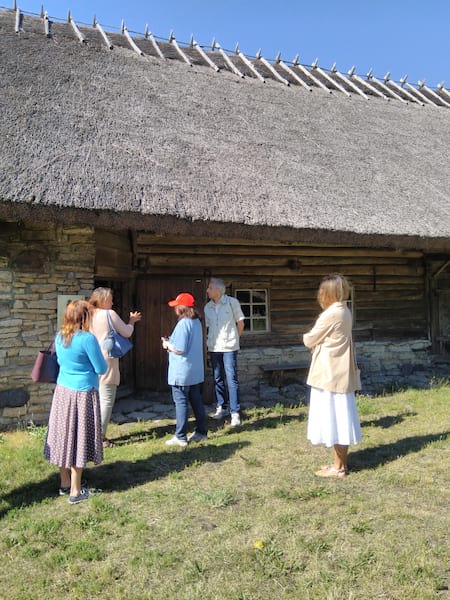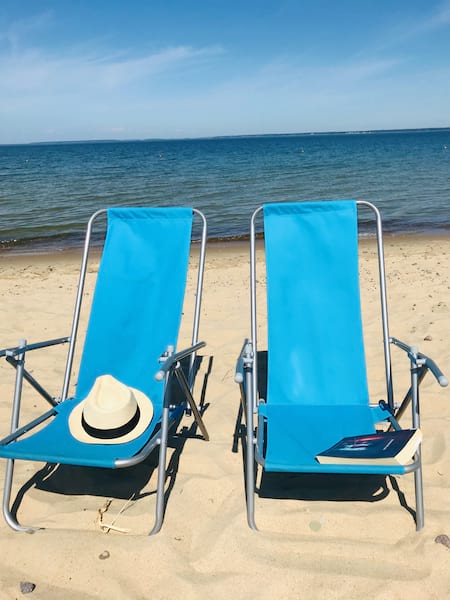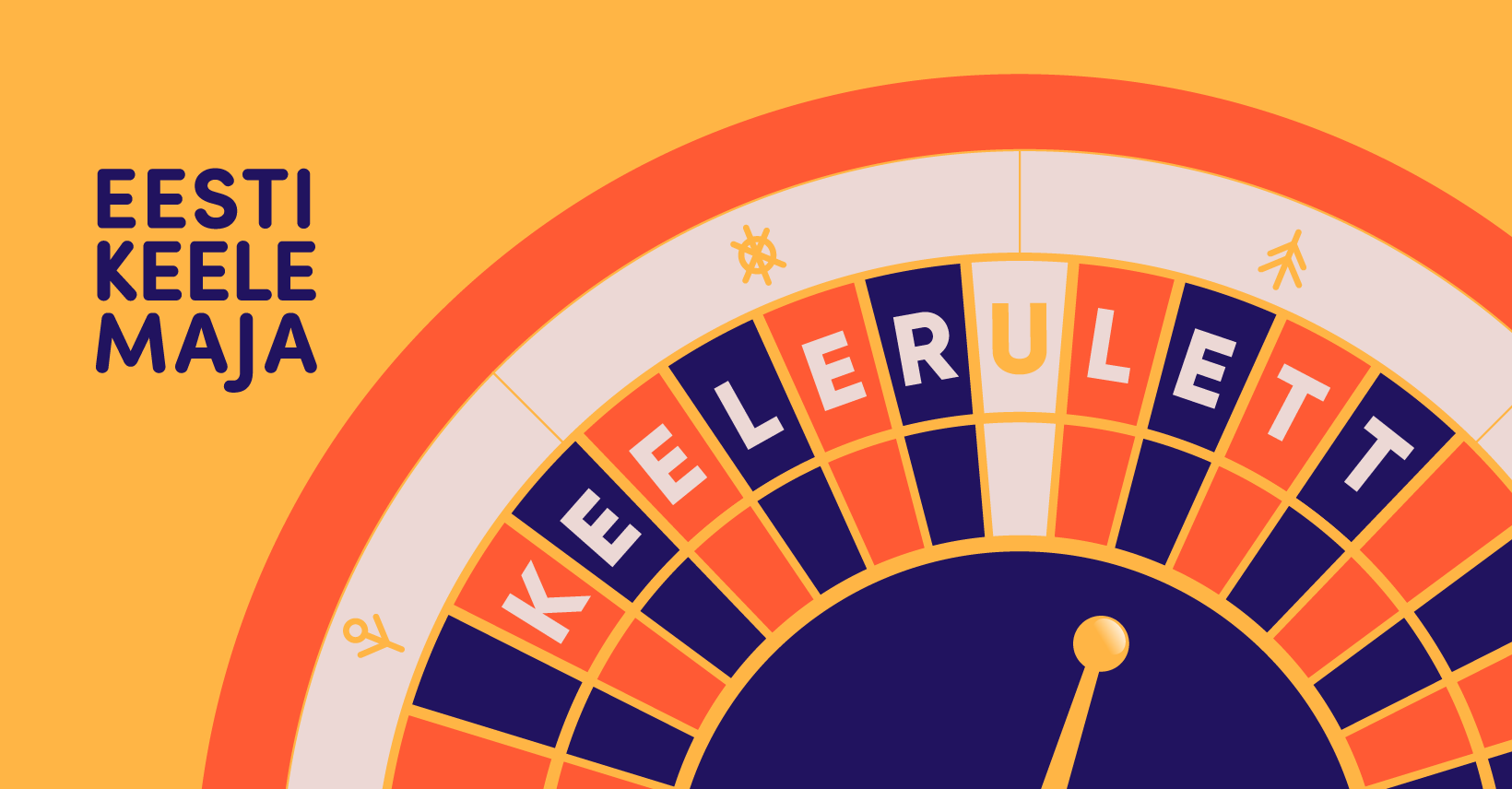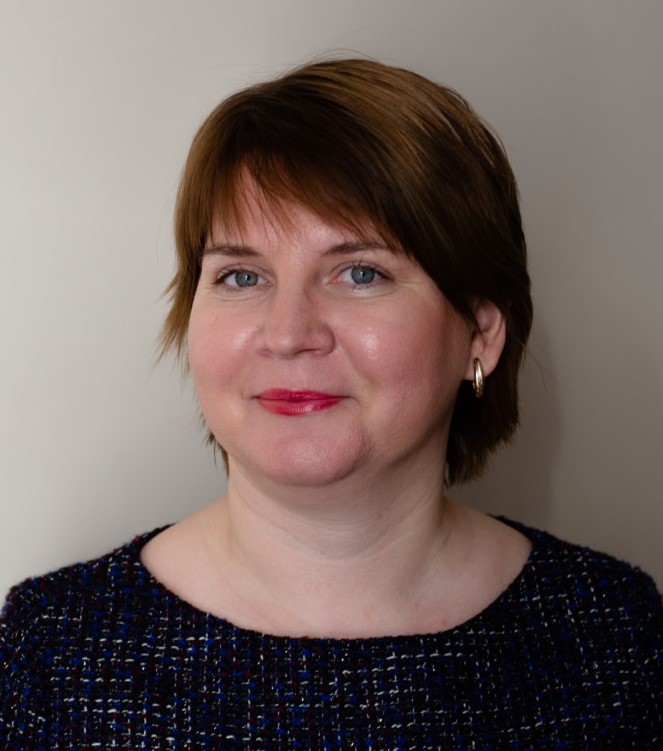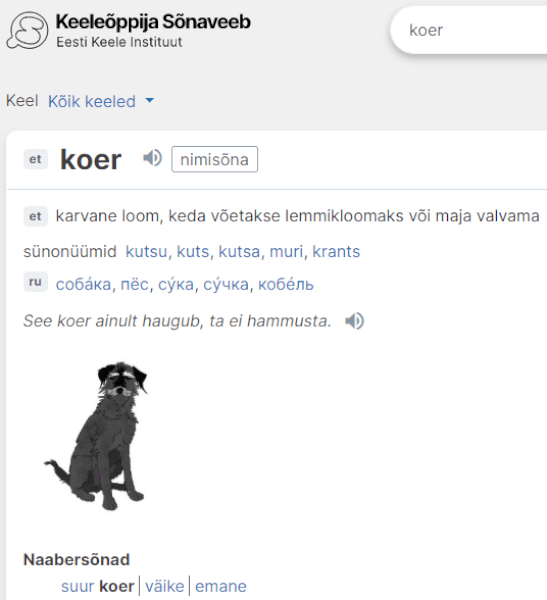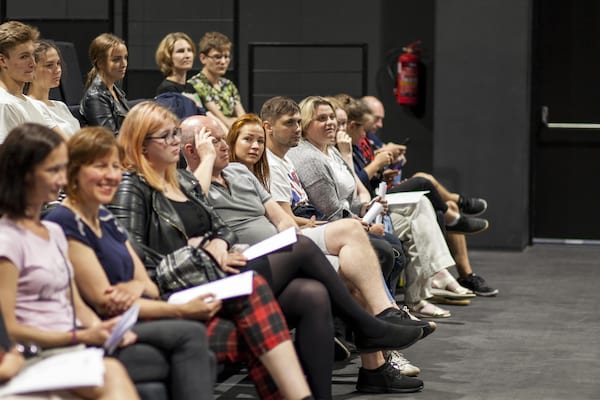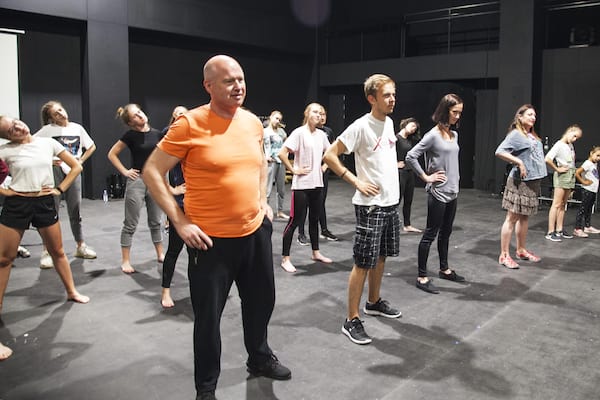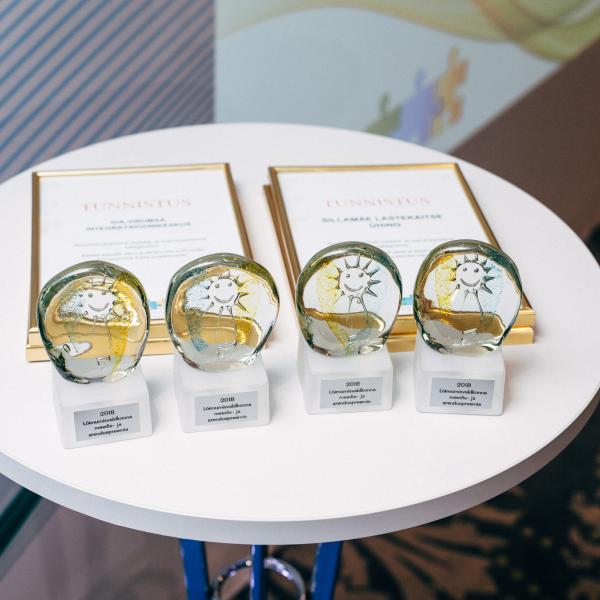Table of Contents:
It is still possible to sign up for the last available spots of the autumn semester
In the autumn season, we await all Estonian language learners to exciting language practice events
Estonian language cafés welcome you to sip coffee and practice Estonian
Special courses to refine your Estonian language skills
Proposals for this year’s integration awards can be submitted only until 1 September!
Ukrainian war refugees will receive free adaptation training and Estonian language courses
Marika Sulg has started working in the Integration Foundation team as a Compatriot Adviser
The summer of camps offered activities for several of the Integration Foundation’s target groups
There are several ongoing public procurements and calls for proposals
Dmitri Moskovtsev: We are looking for options to provide the necessary services to all interested parties
 You have been the Head of the Integration Foundation for two months – how do you like it here?
You have been the Head of the Integration Foundation for two months – how do you like it here?
In short, I like it very much! The last two months in this new position have been extremely eventful and exciting. Starting from my first day at work, I focused on learning more about the team and partners of the Integration Foundation and on acquiring a deeper understanding of every area of activity. I was positively surprised about the extent of the cooperation network of the foundation – meeting all the partners and discussing cooperation will take a considerable amount of time. Another surprise was the extent of the operations of our organisation: we provide various services, support important projects during the application stages, and organise activities that help to increase the cohesion of the society. However, the most vital aspect is our motivated and hard-working team and it is pure joy to work with them towards a better society.
What can clients expect from the Foundation in the coming years?
Many of the activities and services of the Integration Foundation (such as language courses and camps or events for practising language) have a significantly higher number of applicants than we can accommodate. Together with the Ministry of Culture, we are looking for opportunities to provide the necessary services to all interested parties. Among other things, we will focus on developing Estonian Language Houses, which will expand their activities to the Lääne-Harju and Lüganuse rural municipalities this year. We are certainly going to continue developing the self-service system to further facilitate participation in our activities for our clients.
The main goal of the Integration Foundation is supporting the cohesion of the society. In your opinion, what keeps us united?
Estonia has a diverse society. This is an extremely valuable aspect of our culture which we must emphasise more. On the other hand, finding common ground between different nationalities, generations, or the representatives of communities is often complicated. I think that contact and communication between people is important for that. When people communicate, they share their opinions, joys, and possible fears – all of which help to understand each other better.
The latest integration survey indicates that contacts between nationalities have increased over time but there is still a lot of room for improvement. We are working towards creating programmes and organising events where Estonian residents who have never met each other before could meet and, why not, even become friends. Excellent examples of this are the Language Friends programme and the Estonian-Russian or Estonian-English tandem camps, where true cohesion magic happens in addition to practising Estonian. I would like to use this moment to sincerely thank all our volunteers and mentors!
It is still possible to sign up for the last available spots of the autumn semester
 Registration for free Estonian courses in the self-service of the Integration Foundation is about to end. The courses are free and intended for adults from the age of 18.
Registration for free Estonian courses in the self-service of the Integration Foundation is about to end. The courses are free and intended for adults from the age of 18.
Contact language courses take place in Tartu, Pärnu, Valga, Tapa, Sillamäe, Jõhvi, Kohtla-Järve, Tallinn, and Narva. In addition, online courses are held for students across Estonia. The courses take place at the training partners selected as part of the Integration Foundation’s procurement and in Estonian language houses.
In the spring semester of 2022, 1,200 people completed the Estonian language course, and a total of 1,730 people will study in the summer and autumn seasons.
The next registration for courses will take place at the beginning of the next semester in the Integration Foundation’s self-service. We recommend all those interested in language learning to sign up as customers in the self-service to be the first to find out about available study spots. More information on the self-service: integratsioon.ee/en/iseteenindus. For those who do not have the possibility of using the internet-based self-service, the foundation’s advisers will help them choose language learning opportunities and sign up for them by calling +372 800 9999 (free of charge) or by sending an e-mail to info@integratsiooniinfo.ee.
At the end of September, the Integration Foundation will also open registration in Lääne-Harju municipality in Paldiski.
You can register on an ongoing basis for free Estonian language courses (up to level B1) meant for applying for Estonian citizenship, additional information: https://www.integratsioon.ee/en/language-training-apply-estonian-citize….
In the autumn season, we await all Estonian language learners to exciting language practice events
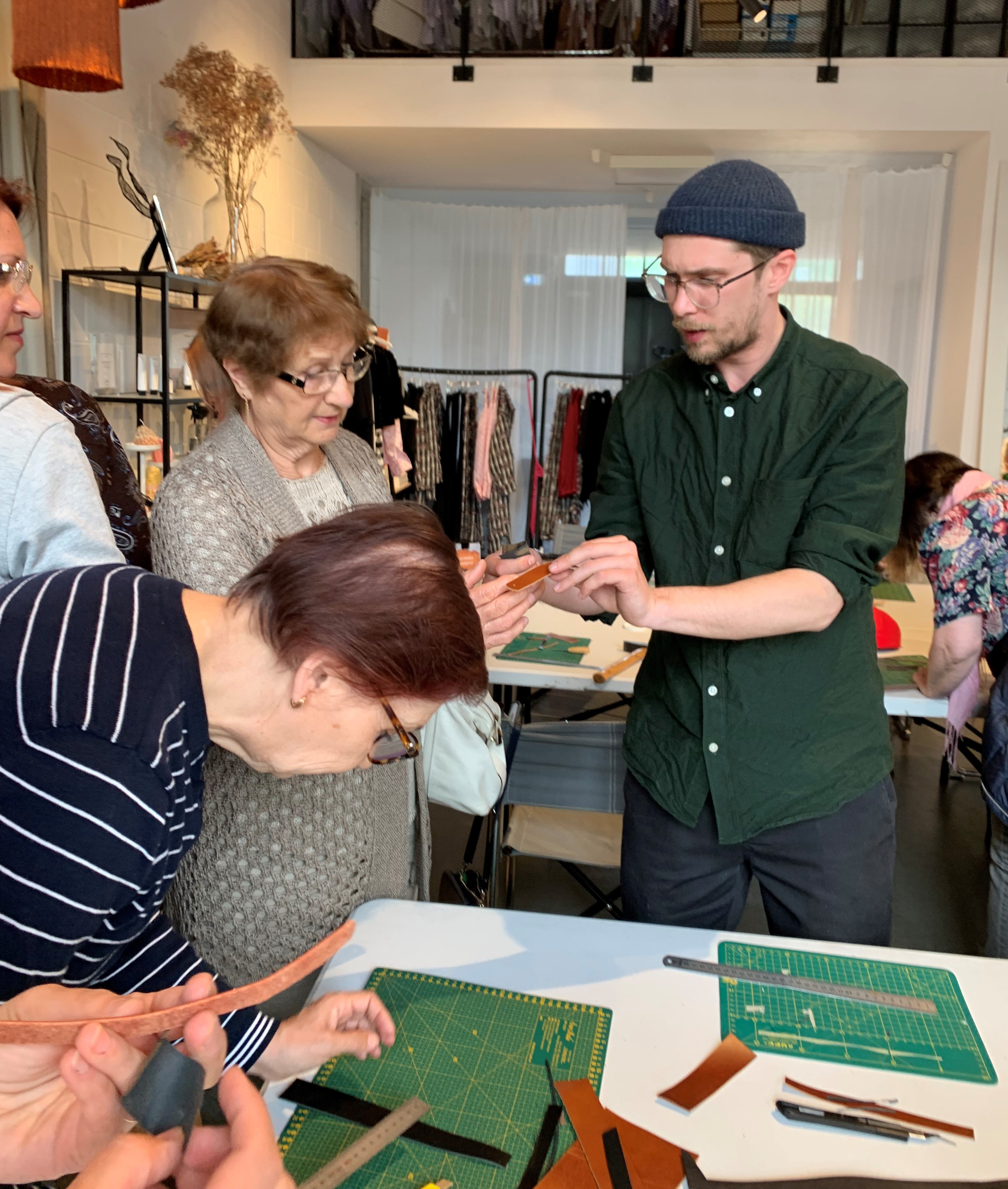 New event plans for practicing communication skills have been completed by the Estonian language houses of Integratsion Foundation. We offer thematic language practice opportunities for all levels of language skills in Tallinn, Pärnu and Pärnumaa, Narva, Sillamäe, online, as well as in new locations such as Lüganuse parish and Lääne-Harju parish.
New event plans for practicing communication skills have been completed by the Estonian language houses of Integratsion Foundation. We offer thematic language practice opportunities for all levels of language skills in Tallinn, Pärnu and Pärnumaa, Narva, Sillamäe, online, as well as in new locations such as Lüganuse parish and Lääne-Harju parish.
The Narva Estonian language house offers good old series of events such as Mokalaat, film showings of new Estonian cinema, and cultural meetings. In October, the Matsalu Nature Film Festival will be once again brought to Narva. The basics of improvisation will be taught in the new series of improv workshops. The series of study trips on the Onion Route, liked by many students, will be returning. The residents of Sillamäe will be offered the opportunity to participate in a social club, led by a journalist from Põhjarannik.
The event schedule of the Tallinn Estonian language house is also highly diverse and offers a multitude of exciting events. The ‘Church Fridays’ will continue, there will be meetings with writers, cooking club meetings, study tours, and a trip to Tartu, as well as many other exciting things for people with varying interests.
The Tallinn Estonian language house again offers activities for the Estonian language learners in Pärnu and Pärnumaa. The traditional Pärnu social club meetings will continue, however there are also many new things to look forward to: a sound journey with rare instruments, an ‘ugrimugri’ party with maris, and a trip to the homestead of a famous Estonian writer.
Starting from autumn, Estonian language houses will offer language practice events in the Lääne-Harju and Lüganuse parishes, where participants can expect discussions, craft workshops, lace classes, trips, etc.
The event calendar of the language houses can be found here: www.integratsioon.ee/en/kalender. The language-practising events can be registered to via the self-service environment where all events of the current month are open for registration and the events of the following month are displayed for making plans.
The exciting projects of the language houses can also be kept up with on Facebook: become a follower of the language houses of Tallinn and Narva!
Estonian language cafés welcome you to sip coffee and practice Estonian
 Since 8 August, all language cafés across Estonia are back in full swing to offer a pleasant opportunity to practice your Estonian speaking skills.
Since 8 August, all language cafés across Estonia are back in full swing to offer a pleasant opportunity to practice your Estonian speaking skills.
The language cafés provide support for independent Estonian studies and a chance to practice to those who want to speak the language – supplement their vocabulary, practice independent learning, and chat on everyday topics in a relaxed environment. Language cafés are held all over Estonia free of charge.
Situations and topics that arise in daily life are discussed at the cafés. These include subjects like introducing yourself, looking for work, self-improvement, communicating with colleagues, travelling, enjoying hobbies, celebrating special occasions and anniversaries, as well as everyday situations, such as attending doctor’s appointments and dealing with officials.
The language cafés offer a total of 240 meeting opportunities per week. The language café schedule and registration information can be found on the Integration Foundation’s website or in the self-service. The language cafés’ schedule will be continuously updated.
Language cafés are held every week all over Estonia: In Tallinn, Maardu, Narva, Sillamäe, Kohtla-Järve, Jõhvi, Narva-Jõesuu, Tartu, Pärnu, and Valga. There is also an online language café held twice a week.
Language cafés are supported from the resources of the ‘Development and implementation of advisory and information system’ activity 5.1 of the ‘Activities supporting integration in Estonian society’ project nr 2014-2020.2.06.004005006.01.15-0001 of the European Social Fund.
Special courses to refine your Estonian language skills
 In addition to regular language courses, the Narva and Tallinn Estonian language houses offer opportunities to improve your skills in a total of 12 different special courses, both in contact learning and online. Participants from all over Estonia are welcome to the online courses.
In addition to regular language courses, the Narva and Tallinn Estonian language houses offer opportunities to improve your skills in a total of 12 different special courses, both in contact learning and online. Participants from all over Estonia are welcome to the online courses.
The special courses of the upcoming academic season are primarily intended for the language house students who have completed or are completing language level courses. Invitations will be sent from mid-September to language learners of the corresponding level who have also signed up as a customer in the Integration Foundation’s self-service. The Integration Foundation’s advisors can also refer you to special courses.
This season, we will be continuing a good tradition in the Narva Estonian language house by offering the popular digital pronunciation course, an online course entitled ‘Journeys through Estonia’, as well as a playful grammar course. Educational courses such as 100 Years of Estonian Music have been added to the list of special courses. In the special courses of the Tallinn Estonian language house, we will be talking about Estonian culture, everyday life, as well as cultures of the world.
The event calendar of the language houses can be found here: www.integratsioon.ee/en/kalender. The language-practising events can be registered to via the self-service environment where all events of the current month are open for registration and the events of the following month are displayed for making plans.The exciting projects of the language houses can also be kept up with on Facebook: become a follower of the language houses of Tallinn and Narva!
Proposals for this year’s integration awards can be submitted only until 1 September!
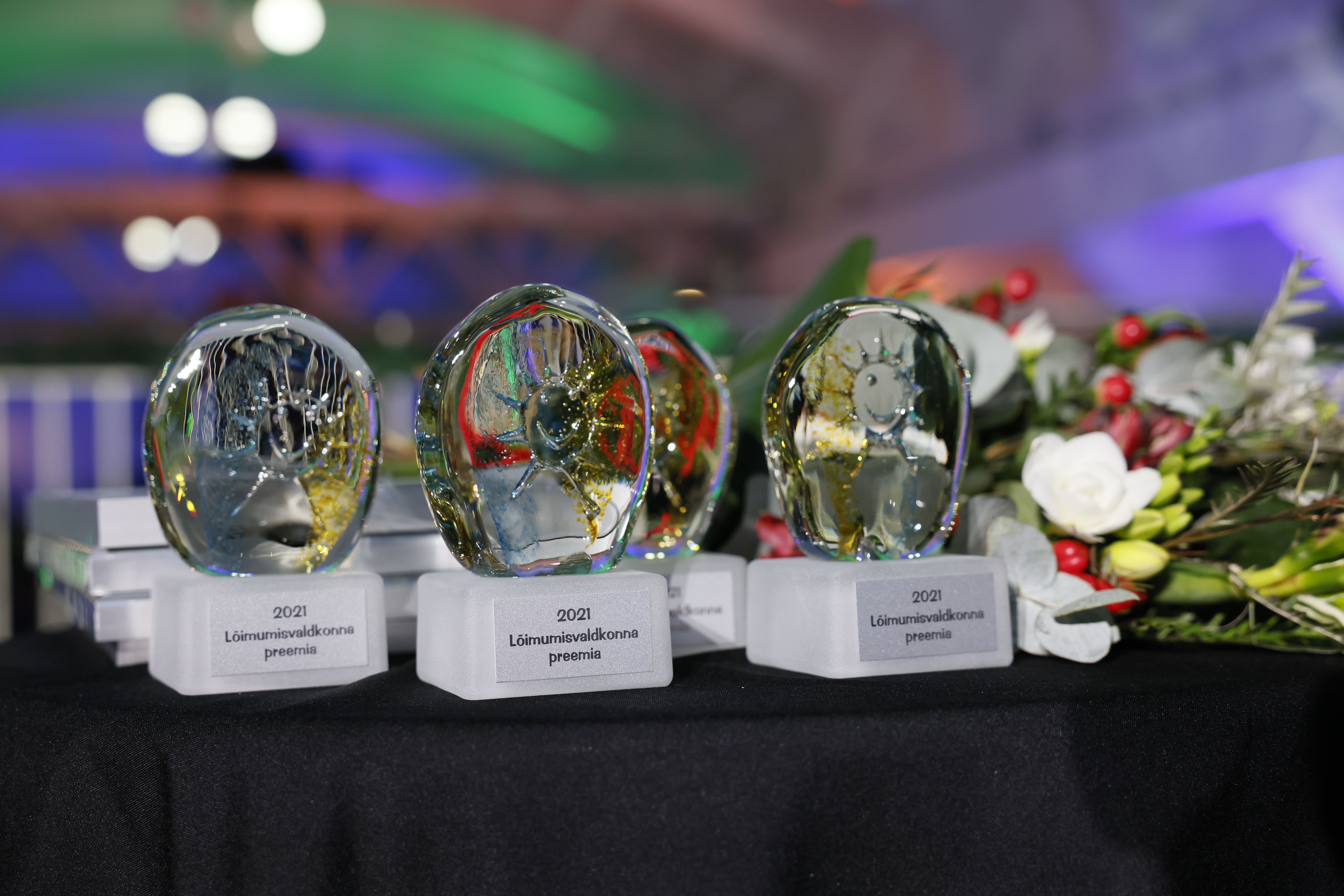 Applications are welcome to the Integration Foundation for receiving awards for projects carried out in the field of integration. The deadline for applications is September 1st.
Applications are welcome to the Integration Foundation for receiving awards for projects carried out in the field of integration. The deadline for applications is September 1st.
The integration prize fund is EUR 4,000. The prizes will be awarded in four categories and the best project promoter of each category will receive a prize of EUR 1,000.
Applications for awards can be submitted in the following categories:
- The building blocks of integration (acknowledging the cultural diversity of Estonia and the targeted long-term activities to promote integration);
- Bridge Builder of the Year (implementation of cooperation projects between native Estonians and non-Estonian residents);
- Message Carrier of the Year (development of attitudes supporting integration through the media);
- Spark of the Year (implementation of outstanding activities in the field of integration).
Applications can be submitted in several categories, but in this case, different projects or activities must be proposed in each category. The competition is for the projects or activities which were initiated on or after 1 September last year and will be completed by the end of August this year at the latest; there are no time limits applicable to the category of ‘The building blocks of integration’.
The full information about the competition and application form can be found HERE (in Estonian)
The awards are funded by the Ministry of Culture. The names of the prize-winners will be published on the website of the Integration Foundation and the awards will be presented at the end of 2022.
Ukrainian war refugees will receive free adaptation training and Estonian language courses
 In July, registration began to the mandatory and free adaptation programme for Ukrainian war refugees who have been granted temporary protection, consisting of adaptation training and Estonian language courses. Nearly 4,000 people have completed adaptation training to date, and nearly 2,000 have started or are about to start learning Estonian.
In July, registration began to the mandatory and free adaptation programme for Ukrainian war refugees who have been granted temporary protection, consisting of adaptation training and Estonian language courses. Nearly 4,000 people have completed adaptation training to date, and nearly 2,000 have started or are about to start learning Estonian.
The Estonian Police and Border Guard Board will send a referral letter for participation in the adaptation programme to all adults who have been granted temporary protection. After that, you must sign up for both the adaptation training and Estonian language courses yourself in the online environment www.settleinestonia.ee.
‘Participation in the adaptation programme is essential to all Ukrainian refugees who have been granted temporary protection in order to cope independently in Estonia and to adapt more smoothly. We ask all those who have already received a referral letter from the Police and Border Guard Board to sign up for training as soon as possible,’ said Kerli Zirk, an advisor of the Cultural Diversity Department of the Estonian Ministry of Culture.
- Adaptation programme module for persons eligible for temporary protection: www.settleinestonia.ee/programme/temporary-protection-module.
- A-1 level Estonian language courses for persons eligible for temporary protection: www.settleinestonia.ee/programme/temporary-protection-lang-module.
Trainings will be organised in all regions of Estonia where persons eligible for temporary protection reside, they can also be completed online.The adaptation programme is led by the Ministry of Culture. Read more HERE.
A large study of the Estonian diaspora conducted by the Institute of Baltic Studies has been completed
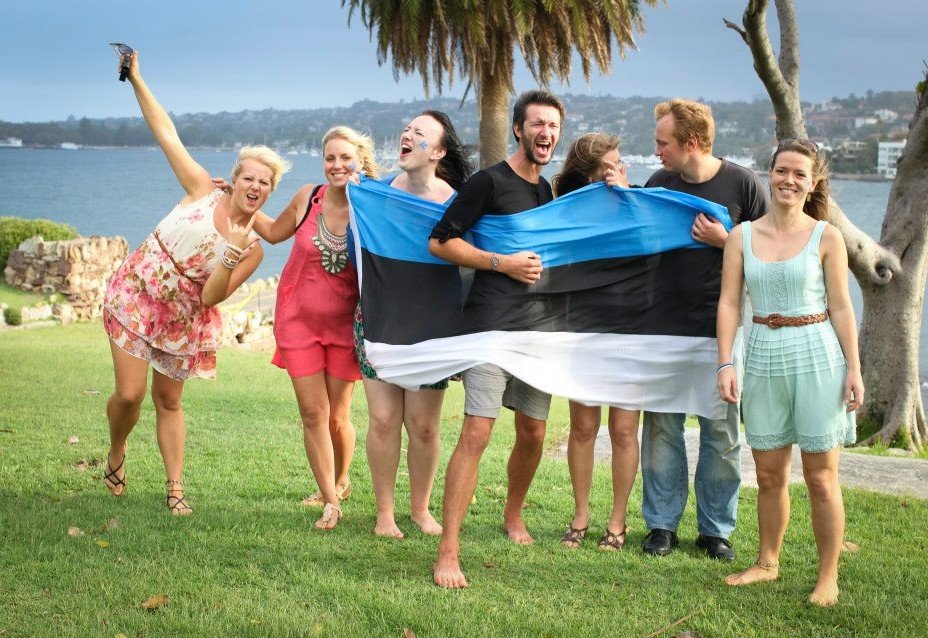 According to various estimations, 150,000 – 200,000 Estonians, people from or connected to Estonia live outside Estonia, which makes up nearly 15% of the Estonian population. At the beginning of the summer, a large-scale study was published, which reveals the identity, attitudes, and expectations of Estonians living abroad regarding Estonia.
According to various estimations, 150,000 – 200,000 Estonians, people from or connected to Estonia live outside Estonia, which makes up nearly 15% of the Estonian population. At the beginning of the summer, a large-scale study was published, which reveals the identity, attitudes, and expectations of Estonians living abroad regarding Estonia.
The results of the study show that:
- global Estonian communities – despite their largely permanent life outside Estonia – are in no way distant, absent, or estranged from Estonia. Most of them are satisfied with their life in their (new) country of residence and have adapted there, but at the same time their sense of belonging to Estonia remains strong;
- more than half of the respondents celebrate holidays related to Estonia and, similarly to Estonians living in Estonia, they are also active in exercising their right to vote by voting in Estonian elections. A large part of families with children wish to pass on the Estonian language, culture, and customs to their children, and the vast majority wish to retain their citizenship of the Republic of Estonia;
- the global Estonian community is very diverse – there is no such thing as an ideal ‘global Estonian’, just as there is no single ‘global Estonian community’. The reasons for the emigration of Estonians are increasingly diverse and in combination with several factors that cause and promote emigration;
- significant differences in attitudes occur both across age groups and between generations, more than half of the families seem to be mixed families, and even if the vast majority of the global Estonian community has Estonian as their mother tongue, nearly a fifth of them have actual Estonian language skills below that of a so-called native speaker.
You can find the complete report of the study on the website of the Institute of Baltic Studies. Photo: nansiphotography.com / estonianworld.com
Marika Sulg has started working in the Integration Foundation team as a Compatriot Adviser
 Since Marika Sulg has lived in St. Petersburg for a long time, participated in international programmes and language camps, and is well acquainted with the worries and joys of Estonians in St. Petersburg, she can understand the challenges of those returning to Estonia. In addition to Estonian, Marika offers counselling in Russian and English.
Since Marika Sulg has lived in St. Petersburg for a long time, participated in international programmes and language camps, and is well acquainted with the worries and joys of Estonians in St. Petersburg, she can understand the challenges of those returning to Estonia. In addition to Estonian, Marika offers counselling in Russian and English.
The purpose of the counselling service is to offer support to compatriots who have developed an interest and desire to return to Estonia, as well as to those who have already started a new life in Estonia. The advisor helps to plan a smoother return to Estonia, including both practical information as well as topics related to re-adjustment in Estonia.
Counselling is still also conducted by the Head of the Compatriots Service, Kaire Cocker, thus we can offer returnees more support than previously.
The summer of camps offered activities for several of the Integration Foundation’s target groups
 During the summer, we organised various camps supporting integration and language learning for young Estonians living abroad, adult learners of Estonian, Romas of Valga, and families from Lääne-Harju parish whose home language is not Estonian.
During the summer, we organised various camps supporting integration and language learning for young Estonians living abroad, adult learners of Estonian, Romas of Valga, and families from Lääne-Harju parish whose home language is not Estonian.
Language camps for young Estonians living abroad were held in Viljandimaa. In the three shifts of the camp, a total of 66 young people from twenty foreign countries, as well as 24 local young people participated, with whom they practiced spoken Estonian and talked about life in Estonia. The young people made friends from compatriots, practiced spoken language and studied grammar, and improved their knowledge of Estonian culture.
Estonian language houses organised various camps offering both language practice and cultural immersion for those who attended language courses and for other interested parties. Estonian-Russian and Estonian-English tandem camps were held, as well as language learning camps in Saaremaa, Nelijärve, and a city camp at the Estonian Museum of Natural History.
From this year, the activities of the Estonian language house in Tallinn also expanded to Lääne-Harju parish. As the first activity, the families there were offered the opportunity to participate in the Fairy tale camps in Vasalemma and Paldiski, where they improved their vocabulary of the Estonian language and gained more courage to use the language in speech through various activities.
Note this on your calendar: the international conference on integration will take place this year on 10–11 November
 The Integration Foundation’s annual international conference on integration will take place on 10–11 November in Tallinn and its theme is ‘Together or Apart: Searching for the Middle Ground’. The conference brings together internationally recognised experts, researchers, and policy-makers, and can also be followed online.
The Integration Foundation’s annual international conference on integration will take place on 10–11 November in Tallinn and its theme is ‘Together or Apart: Searching for the Middle Ground’. The conference brings together internationally recognised experts, researchers, and policy-makers, and can also be followed online.
The theme of this year’s conference deals with segregation in various areas. We will talk about the dangers that might await us if we stay too separate and distant from one another, how other countries have gone about finding a balance, and how we can move forward so that society could be a little more together and a little less apart.
The main speaker of the conference is OSCE High Commissioner on National Minorities and Ambassador Kairat Abdrakhmanov.
In addition, Dr Gemma Catney, a Population and Social Geographer at Queen’s University Belfast, Dr James Laurence, a Senior Research Officer at the Economic and Social Research Institute and Associate Professor at Trinity College Dublin, Dr Judit Kende, a social psychologist working at the Université Libre de Bruxelles, Hanno Kruse, an Assistant Professor in the Department of Sociology at the University of Amsterdam, Laura Kirss, a doctoral student at the University of Tartu and a Science Adviser at the Estonian Ministry of Education and Research, and Dr Patrick Kotzur, an Assistant Professor of Social Psychology at Durham University will be taking the stage.
Participation in the conference is free, registration will open at the beginning of October. You can participate on site in Tallinn or by following the live broadcast of the conference.
There are several ongoing public procurements and calls for proposals
29 August is the last day to submit proposals for the public procurement ‘Estonian language A1-level training for temporary protection recipients II’. The 2022 application round for self-initiated projects aimed at foreign communities in Estonia is open until 5 September. Until the beginning of September, we also await applicants for the 2022 awards in the field of integration in four different categories.
The opportunity to organise more culture and sports events in Ida-Virumaa will be created in the application round ‘Sports and culture events promoting entrepreneurship in Ida-Virumaa II round’, opened in September, with a budget of 150,000 euros.
29. august on viimane päev esitada pakkumusi riigihankele „Eesti keele A1-tasemel õpe ajutise kaitse saajatele II”. Eesti väliskogukondadele suunatud omaalgatuslike projektide taotlusvoor 2022 on avatud 5. septembrini. Septembri alguseni ootame kandideerijaid ka lõimumisvaldkonna 2022. aasta preemiatele neljas erinevas kategoorias.
Võimalust Ida-Virumaal rohkem kultuuri- ja spordisündmusi korraldada loob septembrist avanev taotlusvoor “Ida-Virumaa ettevõtlust edendavad spordi- ja kultuurisündmused II voor” eelarvega 150 000 eurot.
Information on the announced calls is published on the Integration Foundation's website.
Our calendar
Information on events that take place by our organisation, participation or support, can be found in the calendar published on our website.
Our news
You can read the latest announcements of the Integration Foundation in the news section of our website and on the Facebook page of the Integration Foundation or the Estonian Language House.

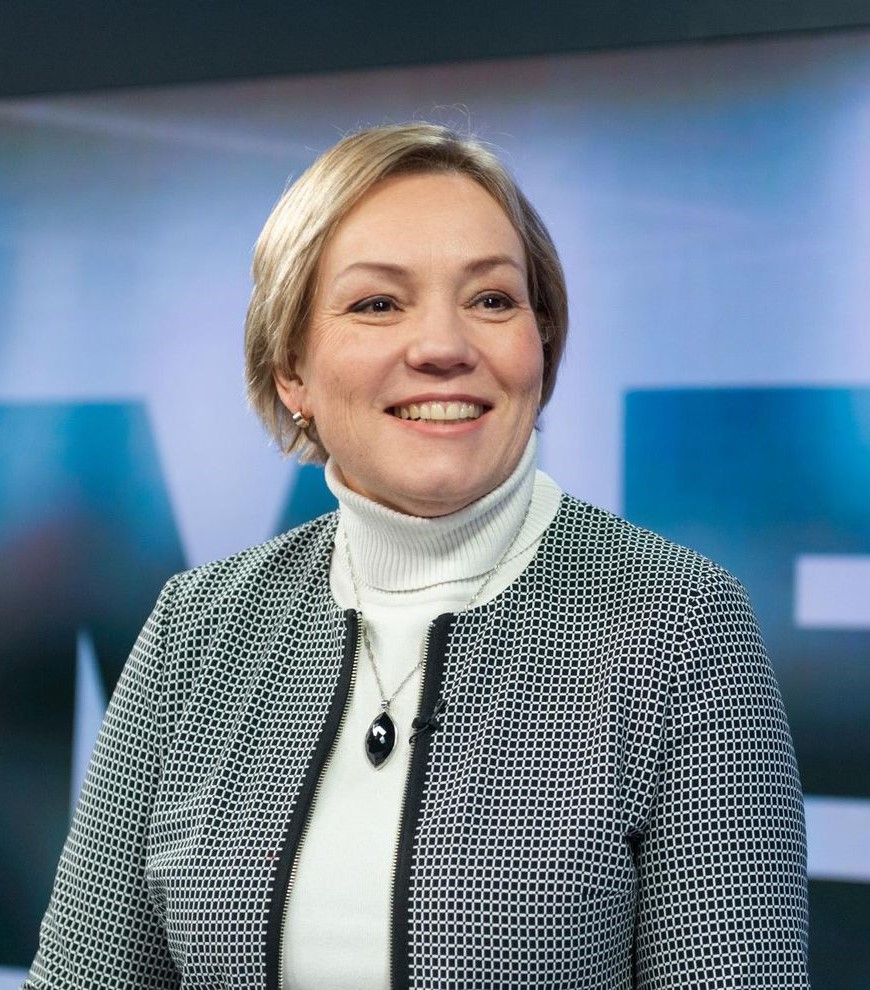 Summer is finally about to arrive and we can close another academic year. This will also mark the end of my work at the foundation. The past five years have been meaningful, full of challenges and successes.
Summer is finally about to arrive and we can close another academic year. This will also mark the end of my work at the foundation. The past five years have been meaningful, full of challenges and successes. The Integration Foundation will be offering over 2,000 places for learning Estonian language for permanent residents as well as new migrants over the summer and autumn. Estonian can be studied for free all over Estonia.
The Integration Foundation will be offering over 2,000 places for learning Estonian language for permanent residents as well as new migrants over the summer and autumn. Estonian can be studied for free all over Estonia. Public sector agencies have teamed up and are welcoming students whose first language is not Estonian to come and see what happens in the public sector, gain knowledge at the summer school, and obtain work experience.
Public sector agencies have teamed up and are welcoming students whose first language is not Estonian to come and see what happens in the public sector, gain knowledge at the summer school, and obtain work experience. The language cafés provide support for independent Estonian studies and a chance to practice to those who want to speak the language – supplement their vocabulary, practice independent learning, and chat on everyday topics in a relaxed environment. Language cafés are held all over Estonia free of charge.
The language cafés provide support for independent Estonian studies and a chance to practice to those who want to speak the language – supplement their vocabulary, practice independent learning, and chat on everyday topics in a relaxed environment. Language cafés are held all over Estonia free of charge. The Integration Foundation and our Estonian Language Houses are preparing opportunities for the refugees who have arrived from Ukraine to learn Estonian on a basic level and offer counselling in language learning as well as adapting.
The Integration Foundation and our Estonian Language Houses are preparing opportunities for the refugees who have arrived from Ukraine to learn Estonian on a basic level and offer counselling in language learning as well as adapting.  The Integration Foundation is welcoming participants to the free courses on the constitution and the Citizenship Act. The courses will start in July. You can register for the courses, which will take place in different regions of Estonia, at
The Integration Foundation is welcoming participants to the free courses on the constitution and the Citizenship Act. The courses will start in July. You can register for the courses, which will take place in different regions of Estonia, at 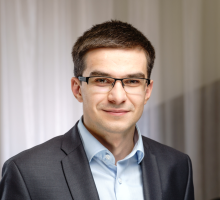 During the summer months, we welcome everyone who have studied Estonian independently or with a teacher to maintain and practice their language skills!
During the summer months, we welcome everyone who have studied Estonian independently or with a teacher to maintain and practice their language skills! The Supervisory Board of the Integration Foundation elected Dmitri Moskovtsev as the new director of the foundation as a result of a public competition. The new director will take office on 1 July. The current director Irene Käosaar will become the headmaster of the new Narva Estonian State High School.
The Supervisory Board of the Integration Foundation elected Dmitri Moskovtsev as the new director of the foundation as a result of a public competition. The new director will take office on 1 July. The current director Irene Käosaar will become the headmaster of the new Narva Estonian State High School.
 The Integration Foundation and our Estonian Language Houses are preparing opportunities for the refugees who have arrived from Ukraine to learn Estonian on a basic level and offer counselling in language learning as well as adapting.
The Integration Foundation and our Estonian Language Houses are preparing opportunities for the refugees who have arrived from Ukraine to learn Estonian on a basic level and offer counselling in language learning as well as adapting. The Integration Foundation provides information and
The Integration Foundation provides information and 

 As soon as the warm summer days arrive, we will be offering more opportunities for practising language skills in the open air – trips, hikes, tours, as well as camps in Narva, Tallinn, and all over Estonia.
As soon as the warm summer days arrive, we will be offering more opportunities for practising language skills in the open air – trips, hikes, tours, as well as camps in Narva, Tallinn, and all over Estonia.




 We have successfully made it to 2022. The beginning of the year is the best time to look back and think about the future.
We have successfully made it to 2022. The beginning of the year is the best time to look back and think about the future.




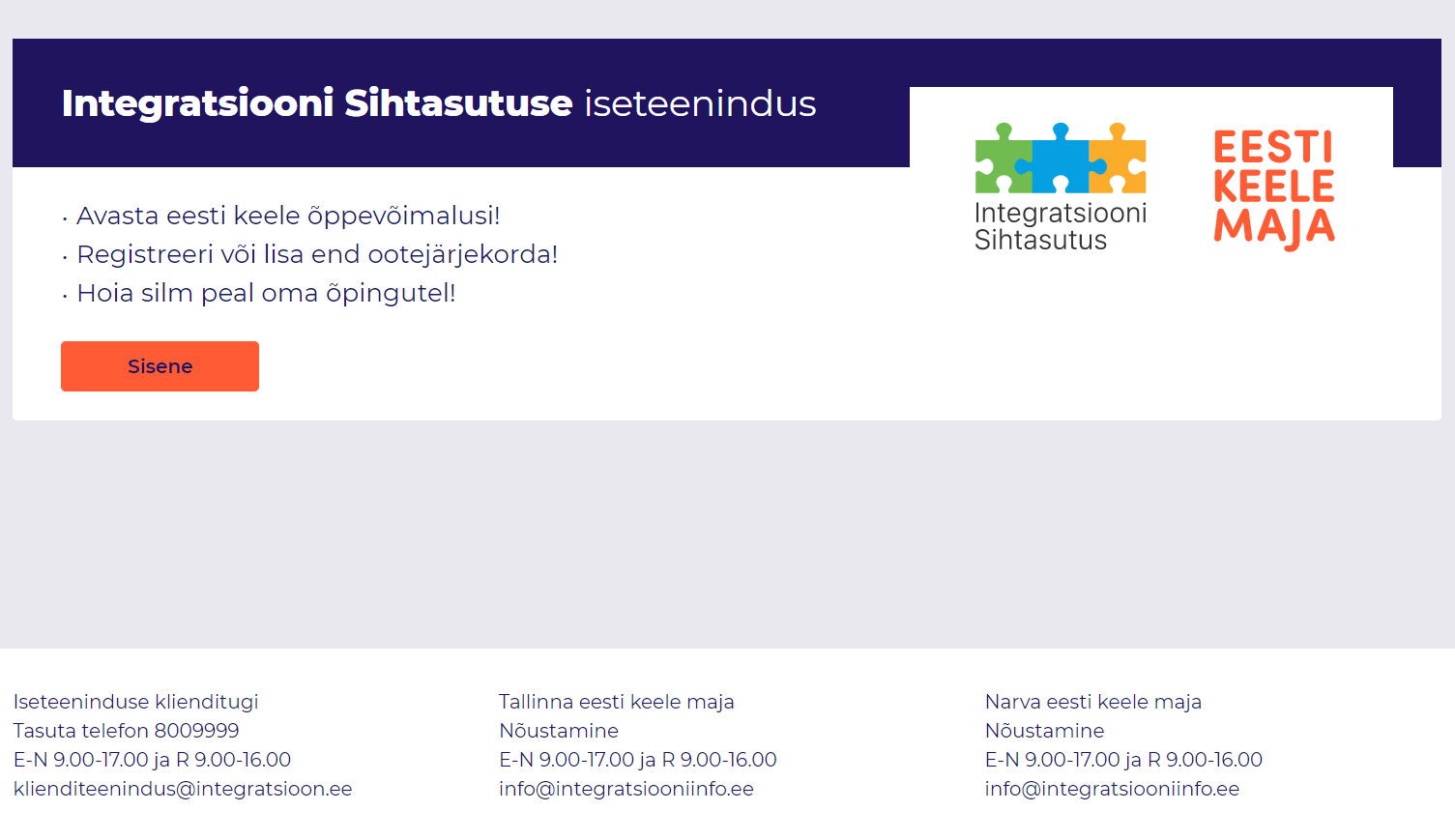
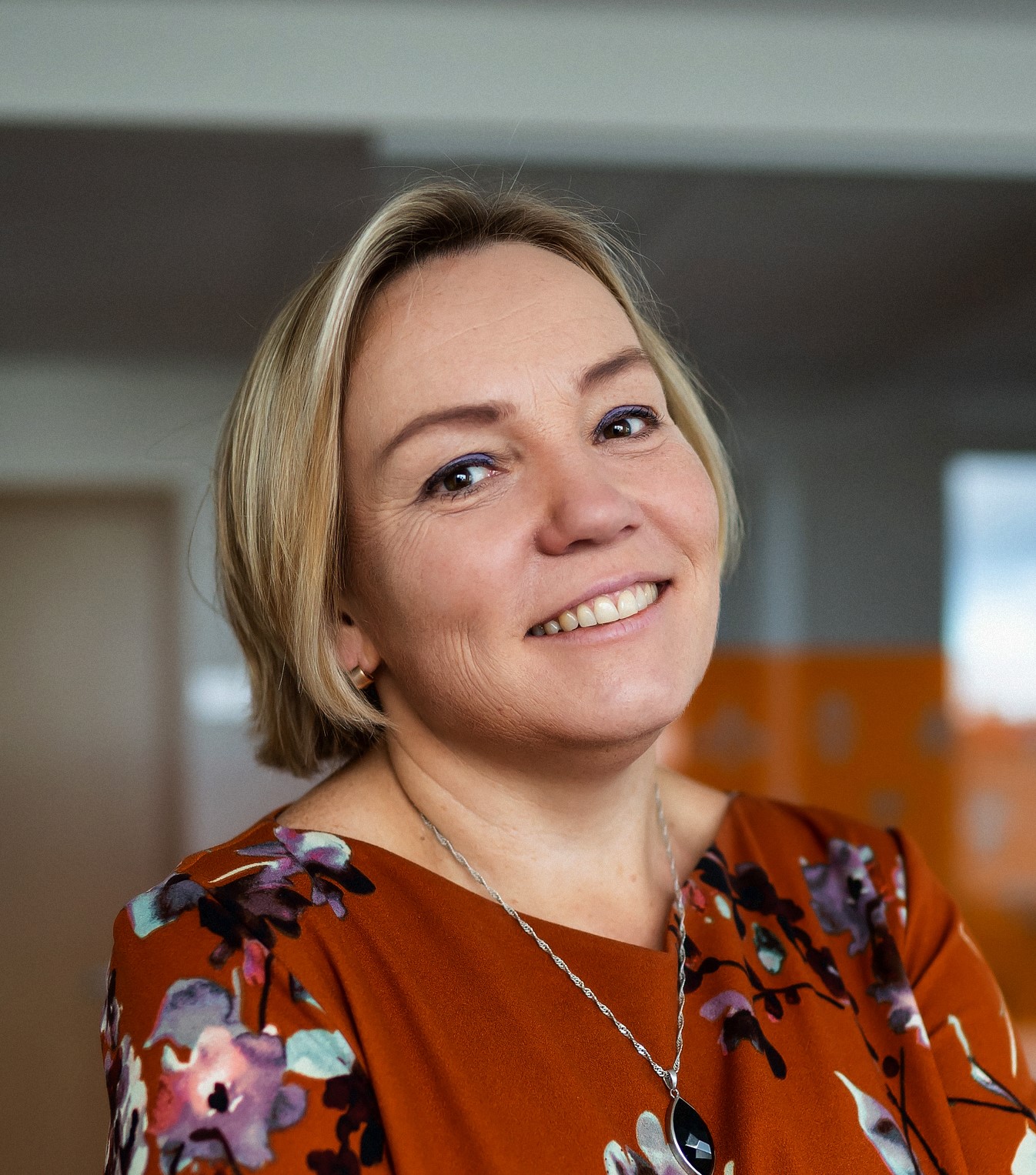 Back in summer, on the 20th of August, we celebrated the 30th anniversary of the restoration of Estonia’s independence with a song festival in Narva. For the last three decades we have been working to drive Estonian society forward, fashion its values and support its democratic processes. Part of that is shaping integration policy, which is closely linked to social processes, being helped or hindered by them on the one hand and contributing to the formation of a more cohesive society on the other.
Back in summer, on the 20th of August, we celebrated the 30th anniversary of the restoration of Estonia’s independence with a song festival in Narva. For the last three decades we have been working to drive Estonian society forward, fashion its values and support its democratic processes. Part of that is shaping integration policy, which is closely linked to social processes, being helped or hindered by them on the one hand and contributing to the formation of a more cohesive society on the other.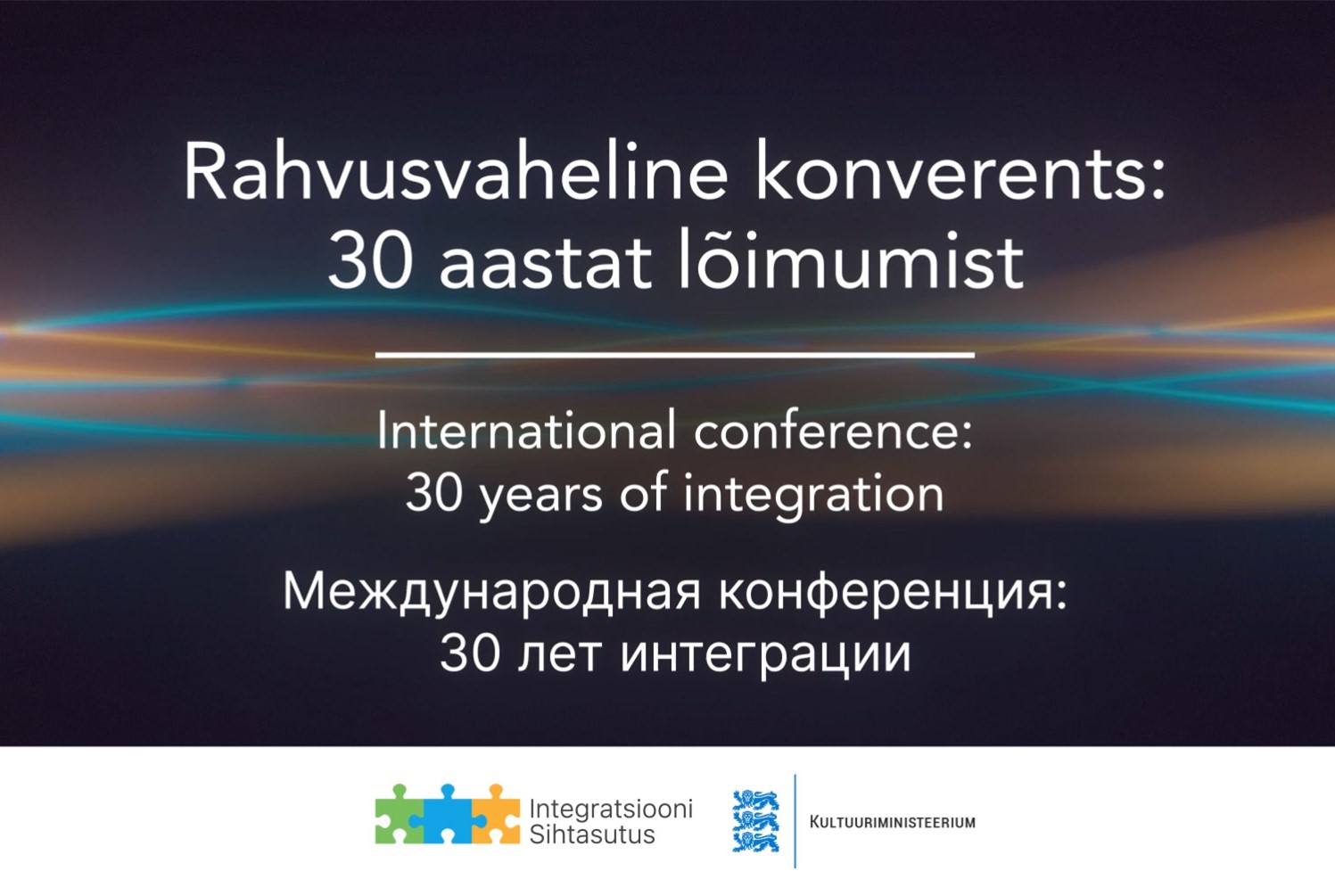 The event will bring together internationally recognised experts from Finland, Latvia, Lithuania, the United Kingdom, Germany, Austria, Switzerland and of course Estonia. The conference will be livestreamed on the
The event will bring together internationally recognised experts from Finland, Latvia, Lithuania, the United Kingdom, Germany, Austria, Switzerland and of course Estonia. The conference will be livestreamed on the 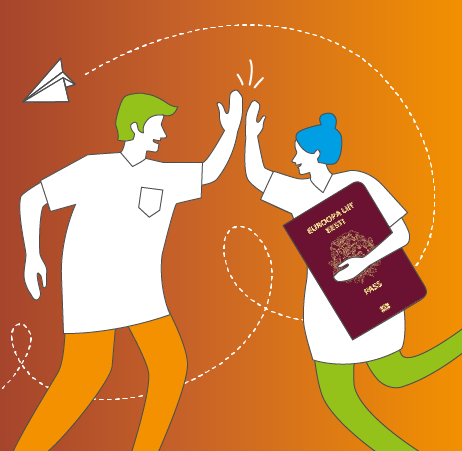 At the meetings, we introduce the possibilities of acquiring citizenship, discuss obstacles and advantages, visit the Riigikogu, share detailed information on what to do to apply for citizenship and give advice on how to prepare for exams.
At the meetings, we introduce the possibilities of acquiring citizenship, discuss obstacles and advantages, visit the Riigikogu, share detailed information on what to do to apply for citizenship and give advice on how to prepare for exams.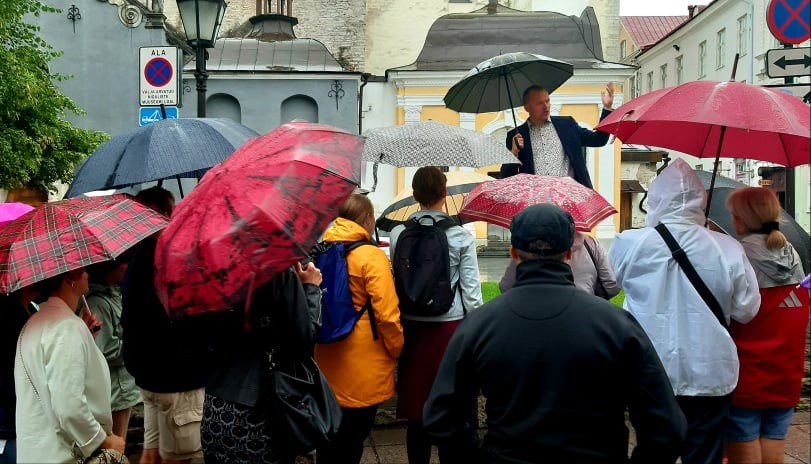 The academic year has gotten off to a flying start in the Integration Foundation’s partner schools and at the Estonian Language Centres in Tallinn and Narva.
The academic year has gotten off to a flying start in the Integration Foundation’s partner schools and at the Estonian Language Centres in Tallinn and Narva.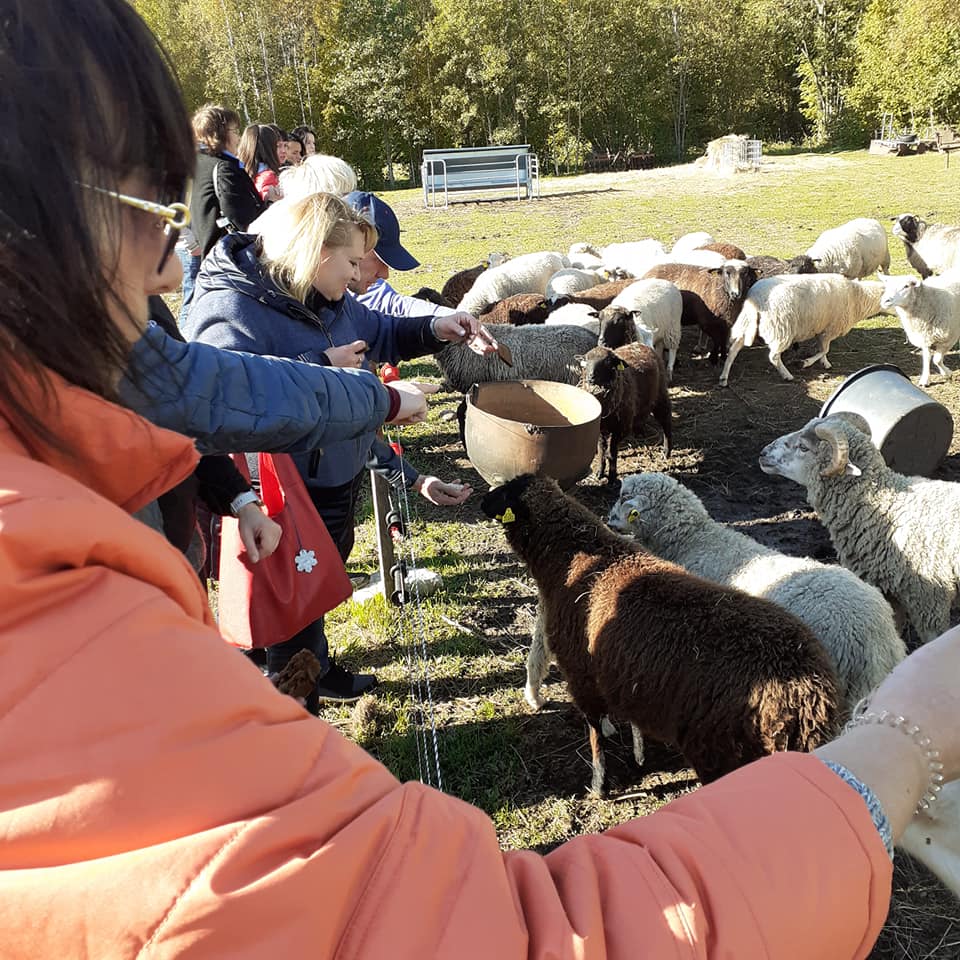 The Integration Foundation also supports employers in organising language studies. A good example is a follow-up course that was organised by the Police and Border Guard Board and the Estonian Language Centre in Narva on which police officers got the chance to study Estonian face-to-face on police premises as well as online and at a language camp held on Saaremaa this autumn.
The Integration Foundation also supports employers in organising language studies. A good example is a follow-up course that was organised by the Police and Border Guard Board and the Estonian Language Centre in Narva on which police officers got the chance to study Estonian face-to-face on police premises as well as online and at a language camp held on Saaremaa this autumn.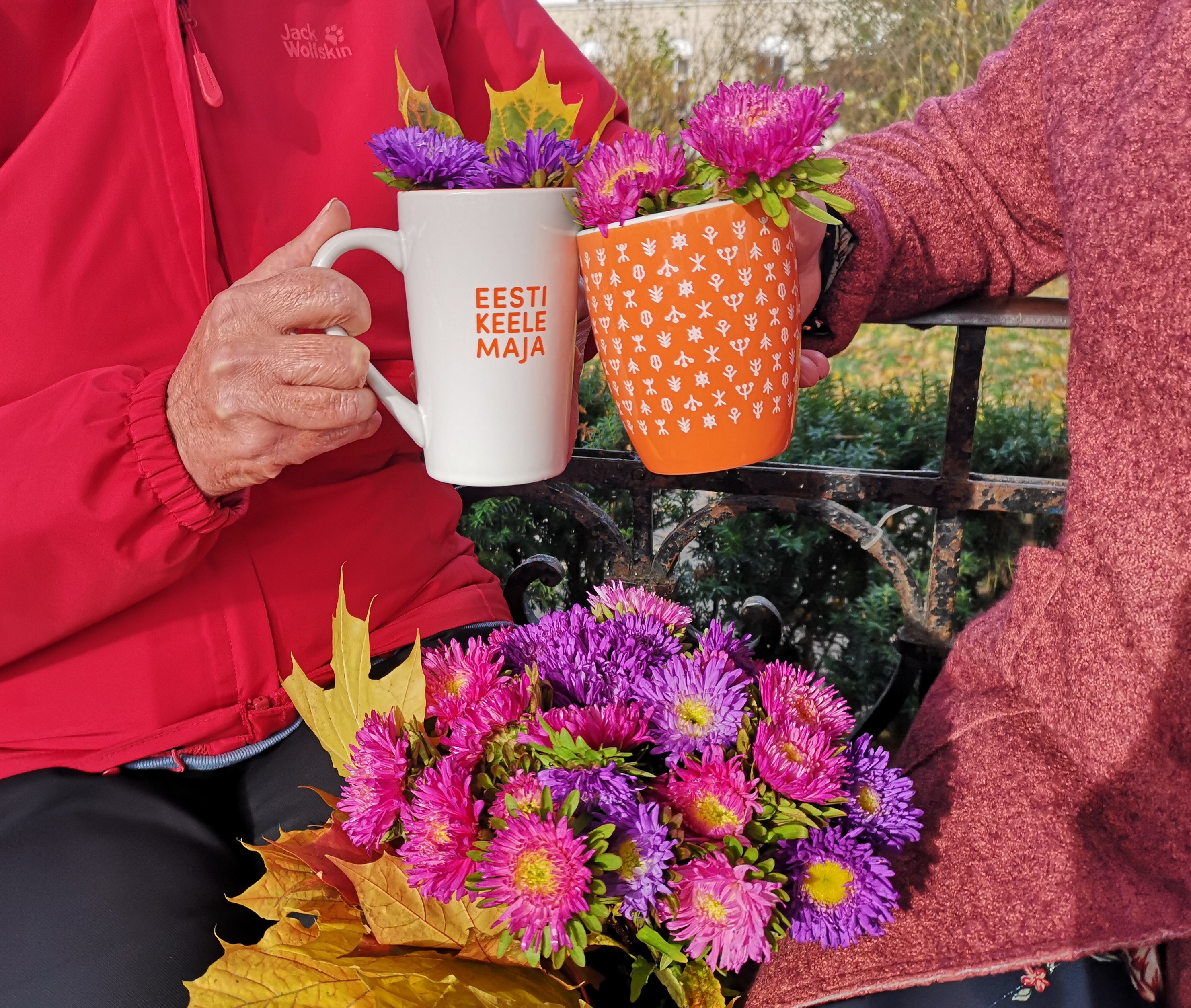 A lot of Estonian courses have already kicked off, but all those learning the language are welcome to take part in the events organised by the Estonian Language Centres in
A lot of Estonian courses have already kicked off, but all those learning the language are welcome to take part in the events organised by the Estonian Language Centres in  The Integration Foundation, working with the Estonian Language Centres in Tallinn and Narva, has produced a range of resources with which students can independently practise their Estonian: several videos and a special handbook.
The Integration Foundation, working with the Estonian Language Centres in Tallinn and Narva, has produced a range of resources with which students can independently practise their Estonian: several videos and a special handbook.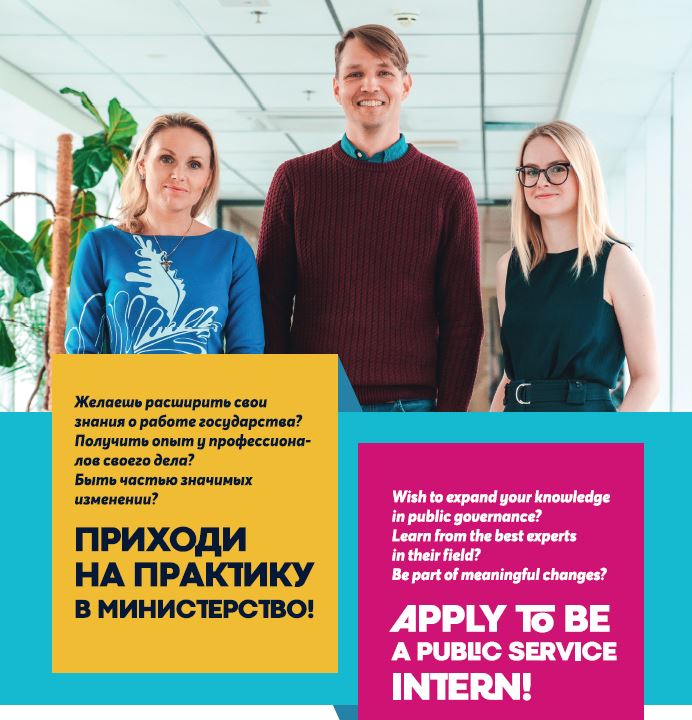 A work placement programme being offered by the Integration Foundation in cooperation with the Ministry of Culture and the Ministry of Finance is set to launch in November whose aim is to showcase employment opportunities in state agencies to students with mother tongues other than Estonian and to encourage them to apply for positions in the public sector in the future.
A work placement programme being offered by the Integration Foundation in cooperation with the Ministry of Culture and the Ministry of Finance is set to launch in November whose aim is to showcase employment opportunities in state agencies to students with mother tongues other than Estonian and to encourage them to apply for positions in the public sector in the future.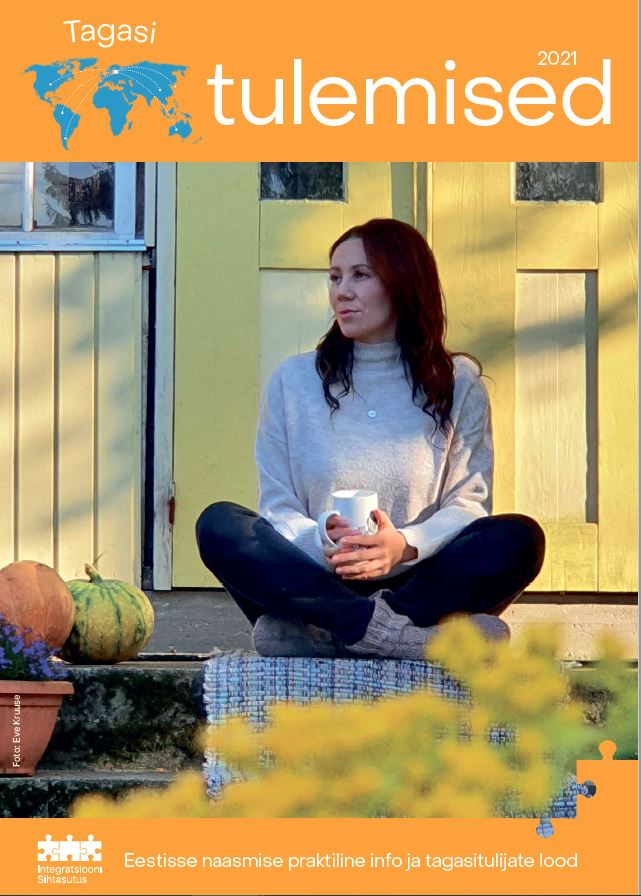 Close to 7000 people with Estonian roots who have been away from the country for anywhere from a few years to as long as they can remember return to their homeland every year. They bring back with them not only the knowledge they have gained, but also a broader outlook on the world. Over the years the Integration Foundation has supported many of them in settling back into life in Estonia – and now has put all of this together in a useful handbook.
Close to 7000 people with Estonian roots who have been away from the country for anywhere from a few years to as long as they can remember return to their homeland every year. They bring back with them not only the knowledge they have gained, but also a broader outlook on the world. Over the years the Integration Foundation has supported many of them in settling back into life in Estonia – and now has put all of this together in a useful handbook.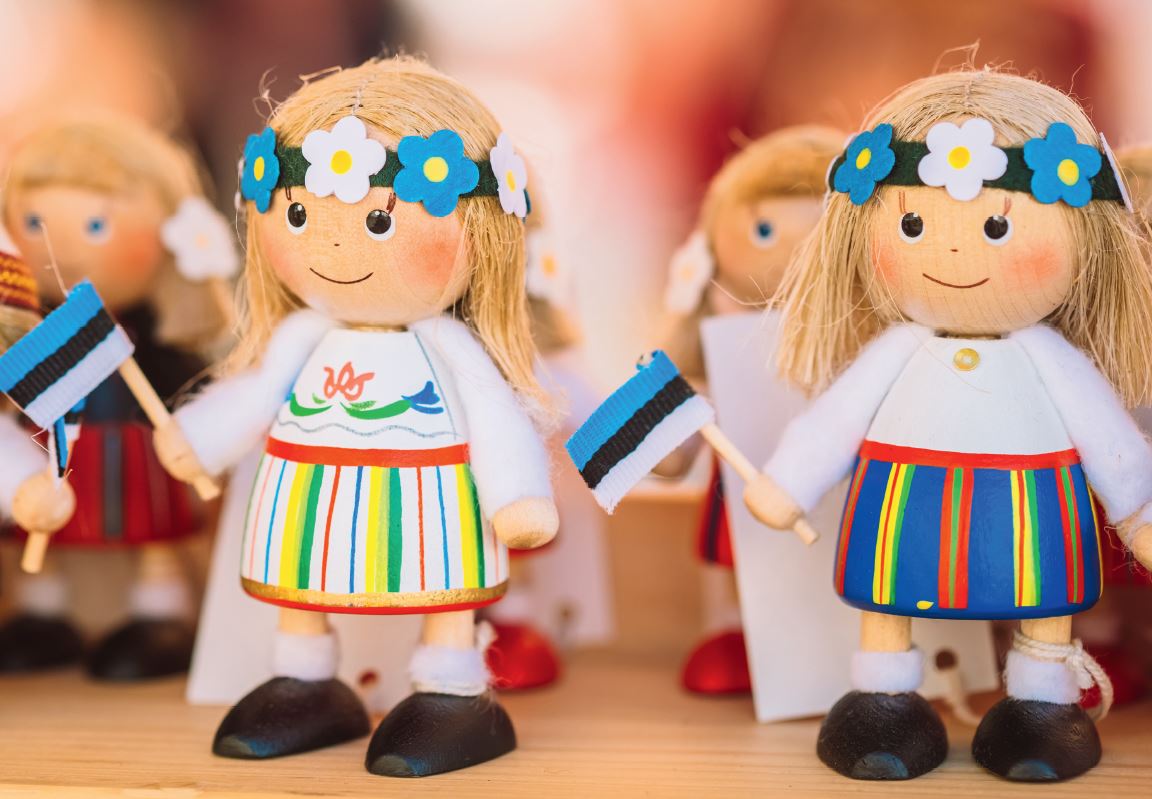 Citizens Day is marked on 26 November, and this year the Integration Foundation is once again organising an exciting online quiz about Estonia’s recent past in honour of the occasion. It will be taking place from 15-28 November, with a focus on interesting events and life in Estonia.
Citizens Day is marked on 26 November, and this year the Integration Foundation is once again organising an exciting online quiz about Estonia’s recent past in honour of the occasion. It will be taking place from 15-28 November, with a focus on interesting events and life in Estonia. Cooperation Days were held in Narva on 27 & 28 August, bringing together representatives of museums, Harju County NGOs and the umbrella organisations of national minority cultural associations. The aim of the event was to find new partners, come up with fresh ideas and foster cooperation among the participants.
Cooperation Days were held in Narva on 27 & 28 August, bringing together representatives of museums, Harju County NGOs and the umbrella organisations of national minority cultural associations. The aim of the event was to find new partners, come up with fresh ideas and foster cooperation among the participants.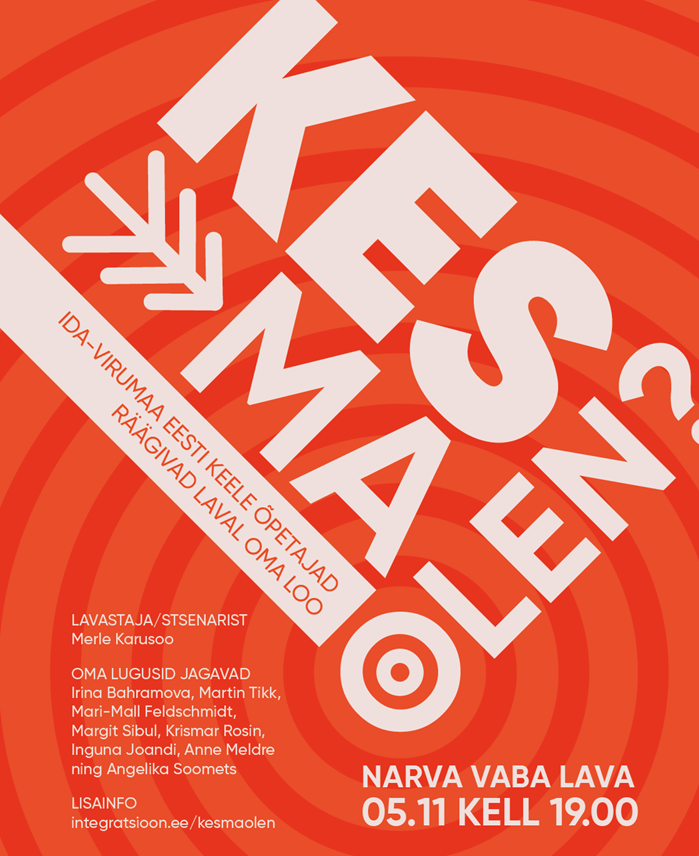 Renowned Estonian director and playwright Merle Karusoo, in cooperation with the Integration Foundation and the Vaba Lava theatre in Narva, is staging a unique play called ‘Who Am I?’ that brings together the stories of Estonian-language teachers from Ida-Viru County and throws open the doors of the world of teaching.
Renowned Estonian director and playwright Merle Karusoo, in cooperation with the Integration Foundation and the Vaba Lava theatre in Narva, is staging a unique play called ‘Who Am I?’ that brings together the stories of Estonian-language teachers from Ida-Viru County and throws open the doors of the world of teaching.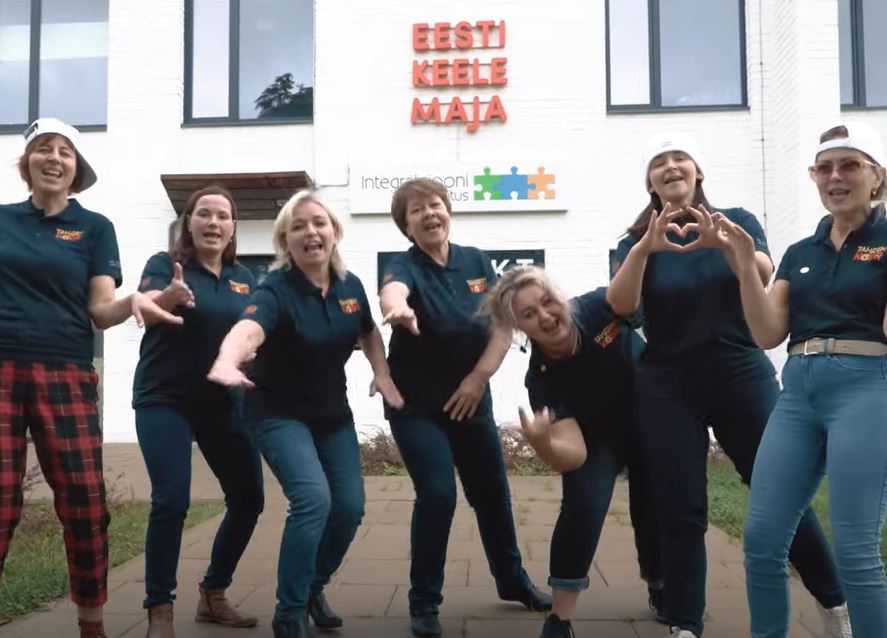 On 1 October we marked two years since the main office of the Integration Foundation and its second Estonian Language Centre opened their doors in Narva. Cool white on the outside but warm and cosy on the inside, the building is home to a friendly team of workers and some wonderful students. Together they worked on
On 1 October we marked two years since the main office of the Integration Foundation and its second Estonian Language Centre opened their doors in Narva. Cool white on the outside but warm and cosy on the inside, the building is home to a friendly team of workers and some wonderful students. Together they worked on 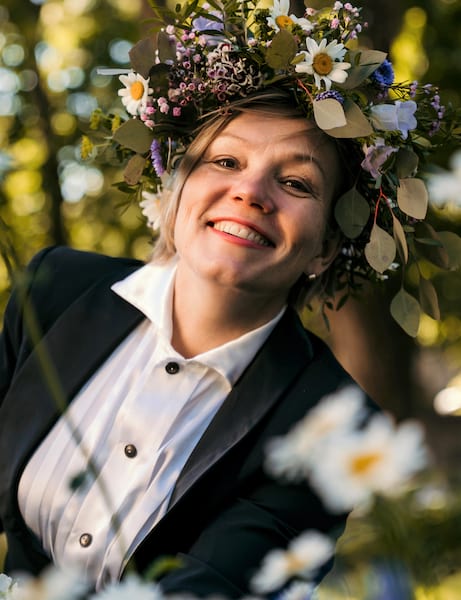
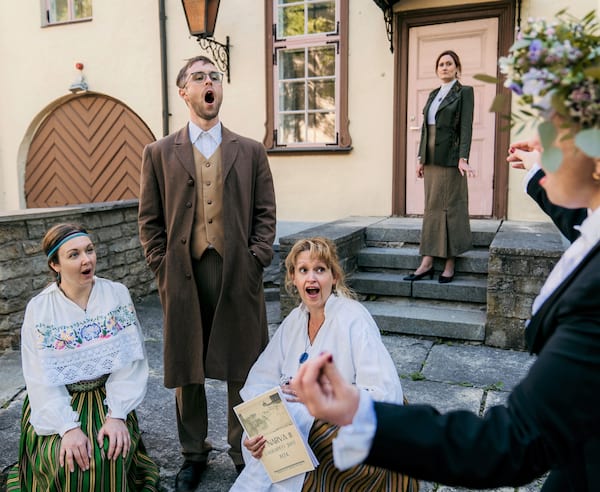
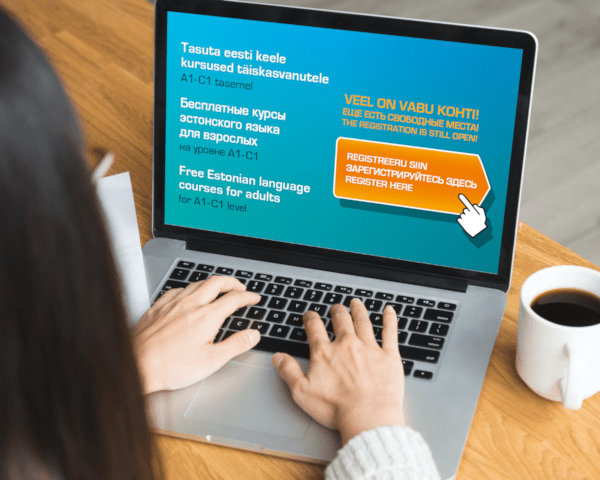
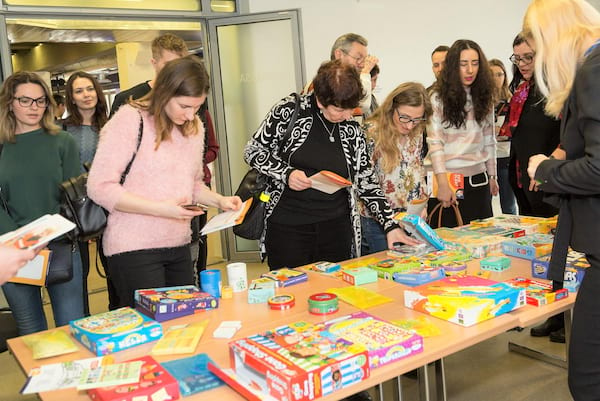
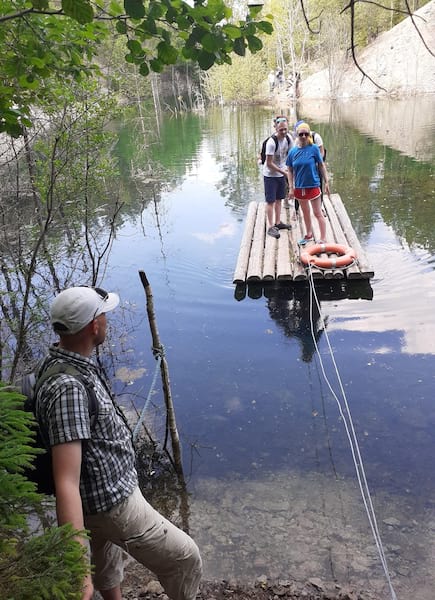
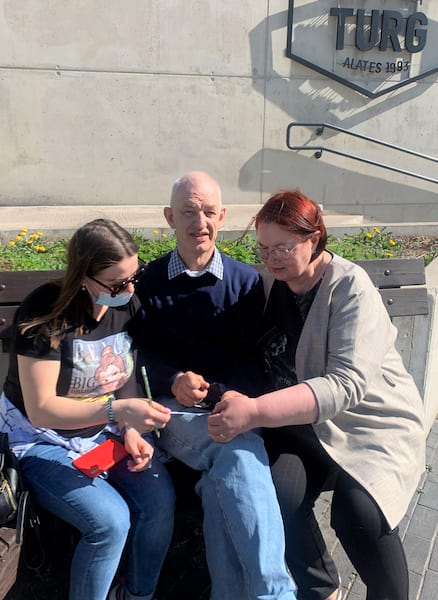
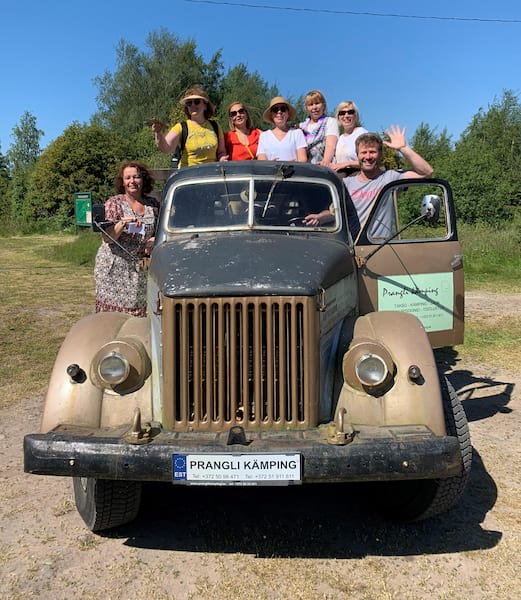
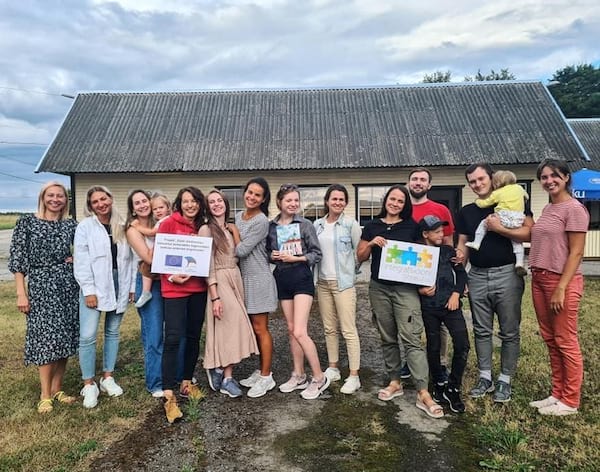
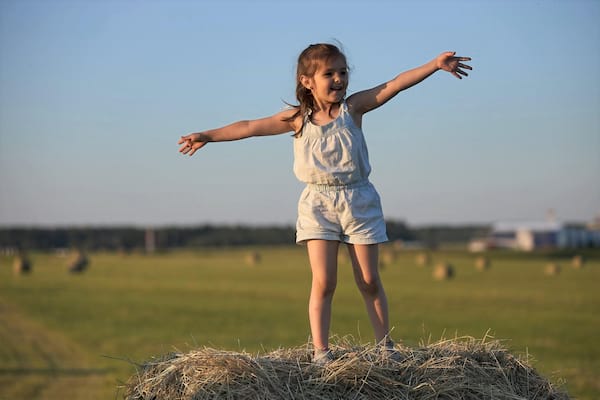
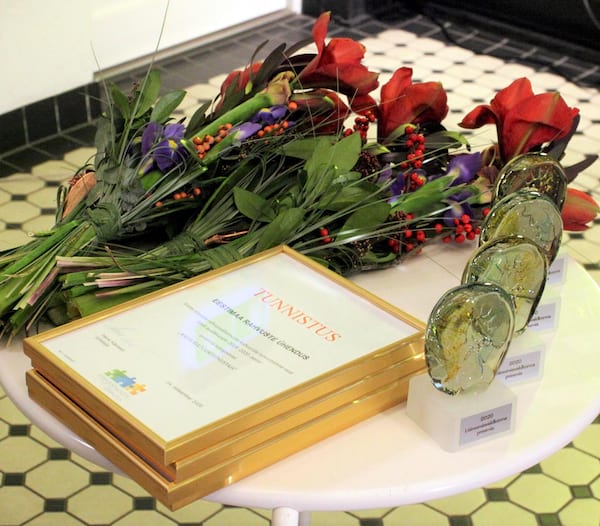

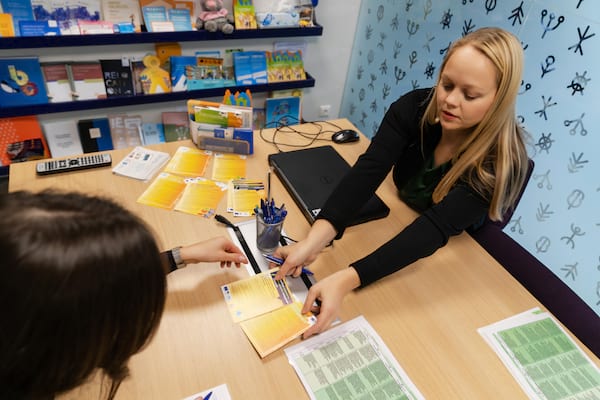

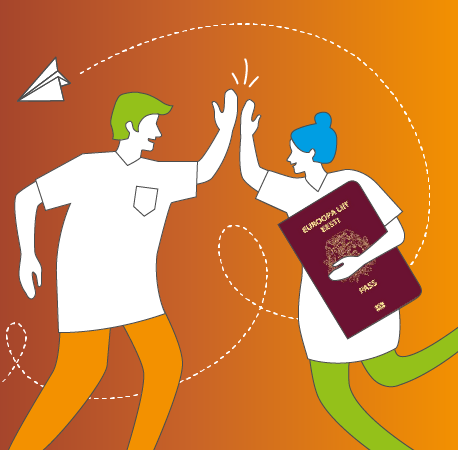

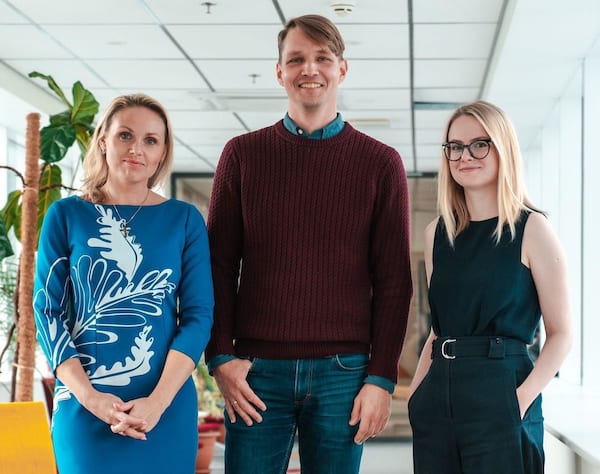 April saw the end of a work placement programmed offered by the Integration Foundation whose aim was to showcase employment opportunities in state agencies to students with mother tongues other than Estonian and to encourage them to apply for positions in the public sector in the future. As part of the programme, a total of 13 students discovered what it is like to work in the Government Office, the Office of the Chancellor of Justice and a variety of ministries.
April saw the end of a work placement programmed offered by the Integration Foundation whose aim was to showcase employment opportunities in state agencies to students with mother tongues other than Estonian and to encourage them to apply for positions in the public sector in the future. As part of the programme, a total of 13 students discovered what it is like to work in the Government Office, the Office of the Chancellor of Justice and a variety of ministries.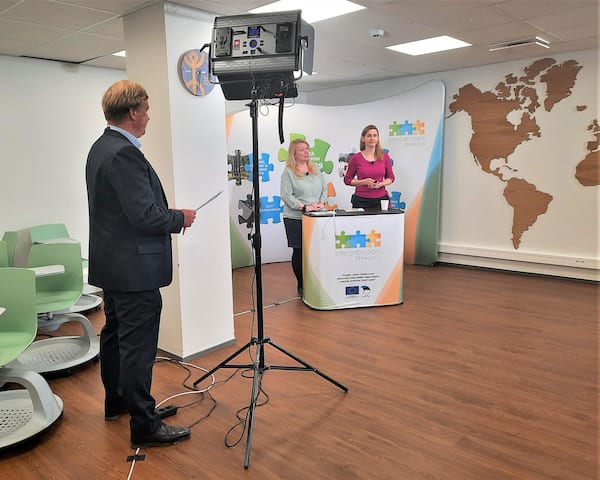 The Integration Foundation is organising a series of 15 training and discussion days in order to introduce local governments to integration and adaptation services, the online integration consultant tool and other recent innovations developed by the state. The best cooperation solutions will be sought for each region in the course of the discussions.
The Integration Foundation is organising a series of 15 training and discussion days in order to introduce local governments to integration and adaptation services, the online integration consultant tool and other recent innovations developed by the state. The best cooperation solutions will be sought for each region in the course of the discussions.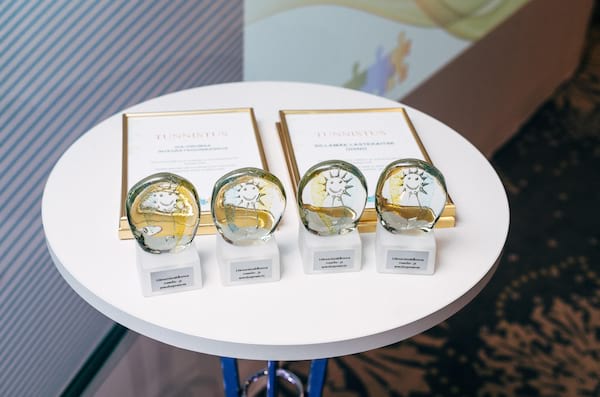
 Today, 12 May, is Diversity Day. And there’s plenty for us to celebrate! The approximately 200 different nationalities represented in Estonia spoke a total of 231 mother tongues in 2020, each of them enriching our cultural space in their own way.
Today, 12 May, is Diversity Day. And there’s plenty for us to celebrate! The approximately 200 different nationalities represented in Estonia spoke a total of 231 mother tongues in 2020, each of them enriching our cultural space in their own way.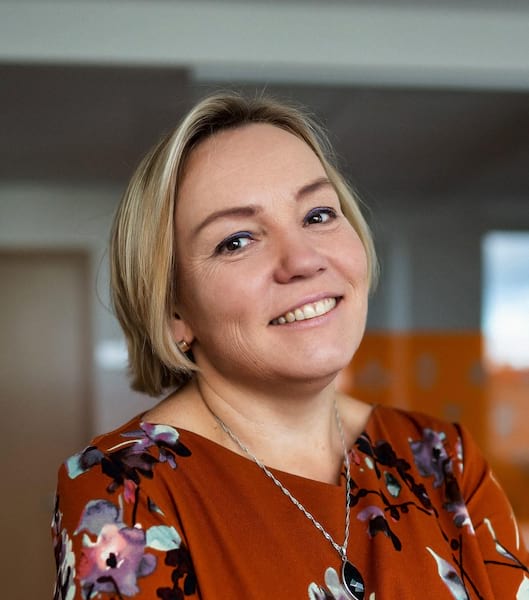 The Integration Foundation gained a proverbial new lease on life in 2018 when it was tasked with establishing Estonian Language Centres in Tallinn and Narva by the government. Two years of hard work in building up these centres – physically and in terms of staff and services – have now started to pay off. Both centres opened their doors in 2019, with classes launched shortly afterwards. Everyone and everything soon settled into place, and things were going very smoothly...
The Integration Foundation gained a proverbial new lease on life in 2018 when it was tasked with establishing Estonian Language Centres in Tallinn and Narva by the government. Two years of hard work in building up these centres – physically and in terms of staff and services – have now started to pay off. Both centres opened their doors in 2019, with classes launched shortly afterwards. Everyone and everything soon settled into place, and things were going very smoothly...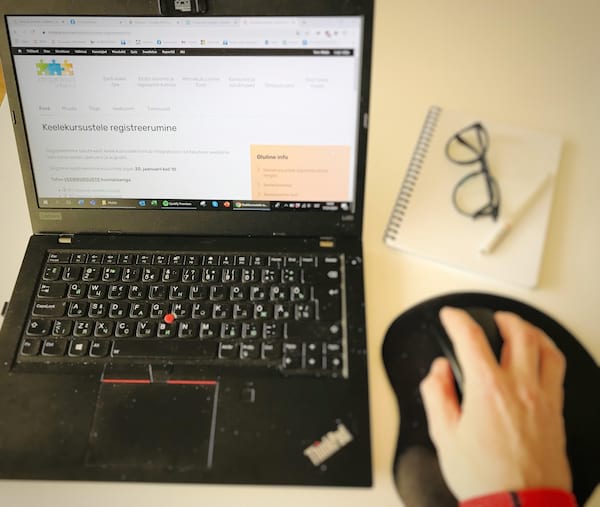 Public registration for free Estonian language courses will open on the
Public registration for free Estonian language courses will open on the  The Integration Foundation offers advisory services to adults who wish to learn Estonian, helping them choose the options that are best suited to them.
The Integration Foundation offers advisory services to adults who wish to learn Estonian, helping them choose the options that are best suited to them. Language Roulette is a series of virtual meetings coorganized by teachers and mentors of the Estonian language houses of the Integration Foundation, which brings together people who want to practice Estonian in a new format of short conversations in the Zoom environment.
Language Roulette is a series of virtual meetings coorganized by teachers and mentors of the Estonian language houses of the Integration Foundation, which brings together people who want to practice Estonian in a new format of short conversations in the Zoom environment. February will see language lovers being assisted once more as part of the Language Friends programme of the Integration Foundation, with mentors volunteering to help learners practise their spoken Estonian by regularly chatting to them on a wide range of topics via e-channels.
February will see language lovers being assisted once more as part of the Language Friends programme of the Integration Foundation, with mentors volunteering to help learners practise their spoken Estonian by regularly chatting to them on a wide range of topics via e-channels. Estonian language and culture clubs represent an additional opportunity for those interested in learning the national language to hone their skills and practise the spoken language. The list of the clubs that are set to open is being constantly updated, with registration on the Integration Foundation
Estonian language and culture clubs represent an additional opportunity for those interested in learning the national language to hone their skills and practise the spoken language. The list of the clubs that are set to open is being constantly updated, with registration on the Integration Foundation  A mixed choir brought together by the Integration Foundation’s Estonian Language Centre in Narva is giving 45 people the opportunity to hone their language skills by singing in both Estonian and Russian. Most of the chorists are from Ida-Viru County, but there are also those from as far afield as Tallinn and Tartu.
A mixed choir brought together by the Integration Foundation’s Estonian Language Centre in Narva is giving 45 people the opportunity to hone their language skills by singing in both Estonian and Russian. Most of the chorists are from Ida-Viru County, but there are also those from as far afield as Tallinn and Tartu.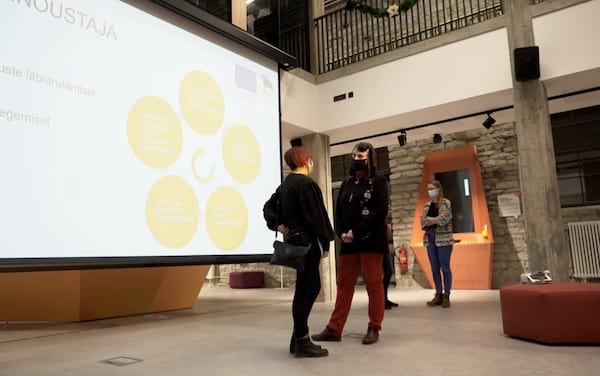 Since October last year, the Integration Foundation has organized meetings supporting the adaptation of returnees to Estonia, where more than 150 returnees and compatriots living in other countries were able to share their experience and practical information in adapting to a new life in Estonia. The meetings for sharing experiences will continue this year as well.
Since October last year, the Integration Foundation has organized meetings supporting the adaptation of returnees to Estonia, where more than 150 returnees and compatriots living in other countries were able to share their experience and practical information in adapting to a new life in Estonia. The meetings for sharing experiences will continue this year as well.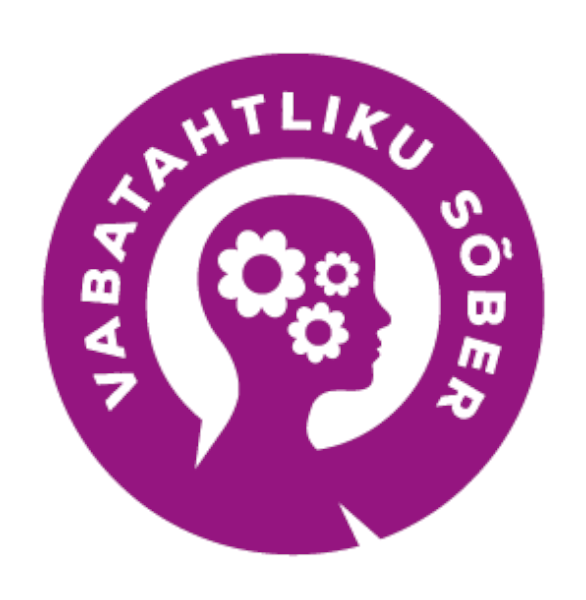 In early January, Minister of Population Affairs Riina Solman presented the Integration Foundation with the prestigious Volunteer’s Friend Label in recognition of its well-planned inclusion of volunteers in line with best practice in voluntary work.
In early January, Minister of Population Affairs Riina Solman presented the Integration Foundation with the prestigious Volunteer’s Friend Label in recognition of its well-planned inclusion of volunteers in line with best practice in voluntary work.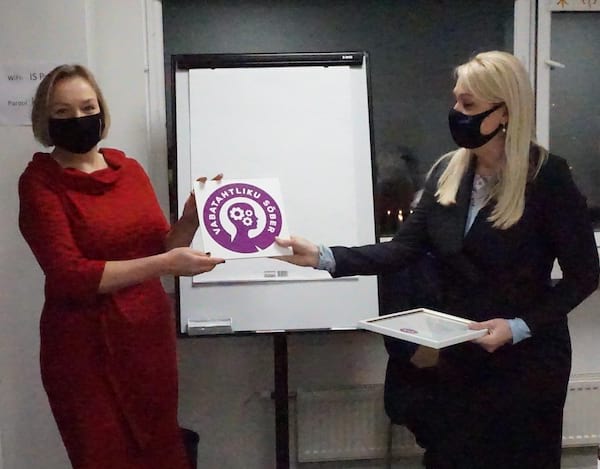
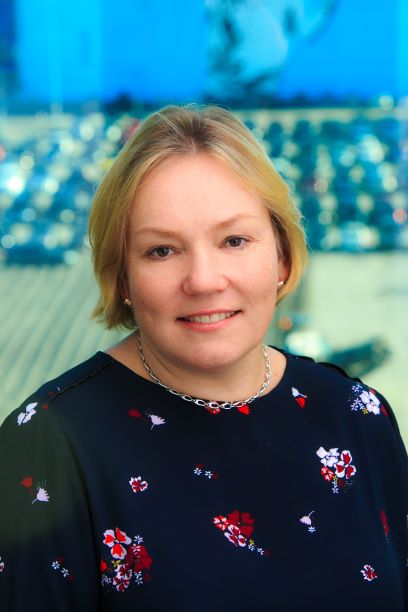
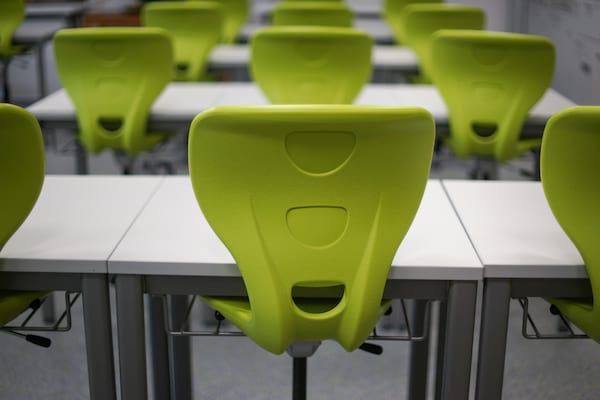 Registration in August for the free Estonian language courses run by the Integration Foundation led to a total of 2560 adults taking up studies in September. There will be a further opportunity to register for courses in January, when the foundation will be offering more than 1000 additional places.
Registration in August for the free Estonian language courses run by the Integration Foundation led to a total of 2560 adults taking up studies in September. There will be a further opportunity to register for courses in January, when the foundation will be offering more than 1000 additional places.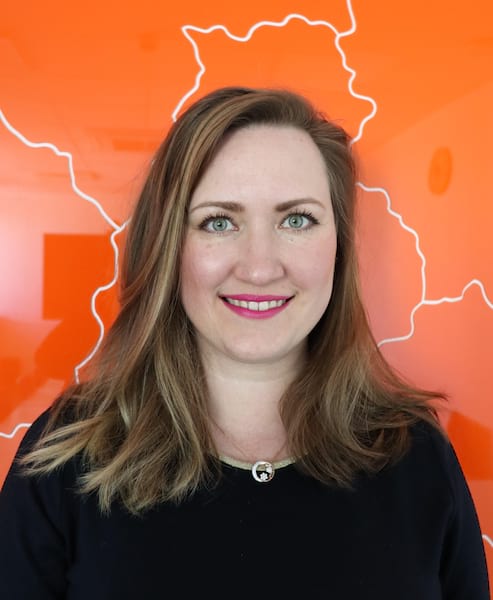 Hedvig Evert: Here in Tallinn our autumn season’s got underway with 309 students divided up between 20 groups. We opened courses at the A1, A2 and B1 levels. We now have eight teachers, since two newcomers have just joined us. We’ve now got an Activities Coordinator as well, who at the moment is overseeing Language Roulette, the Language Friends project and our volunteer programme, as well as establishing partnerships in Tallinn, Tartu, Pärnu and Narva and, from here on in, taking more and more responsibility for coordinating supporting activities in and around the centre. The textbooks we use were delivered early, so thanks to that, and to the exciting language-learning games we play and our timetable having fully taken shape, things have started really well for us.
Hedvig Evert: Here in Tallinn our autumn season’s got underway with 309 students divided up between 20 groups. We opened courses at the A1, A2 and B1 levels. We now have eight teachers, since two newcomers have just joined us. We’ve now got an Activities Coordinator as well, who at the moment is overseeing Language Roulette, the Language Friends project and our volunteer programme, as well as establishing partnerships in Tallinn, Tartu, Pärnu and Narva and, from here on in, taking more and more responsibility for coordinating supporting activities in and around the centre. The textbooks we use were delivered early, so thanks to that, and to the exciting language-learning games we play and our timetable having fully taken shape, things have started really well for us.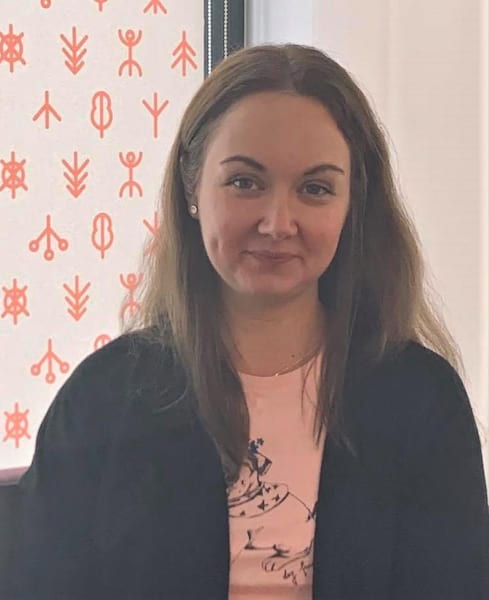
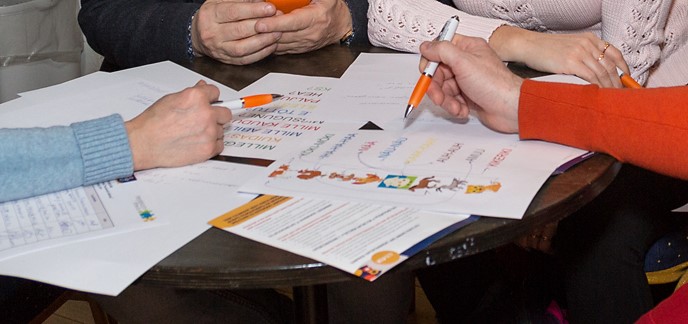 Estonian language cafés and Estonian language and culture clubs represent an additional opportunity for those interested in learning the national language to hone their skills and practise the spoken language.
Estonian language cafés and Estonian language and culture clubs represent an additional opportunity for those interested in learning the national language to hone their skills and practise the spoken language. The Integration Foundation offers advisory services to adults who wish to learn Estonian, helping them choose the options that are best suited to them.
The Integration Foundation offers advisory services to adults who wish to learn Estonian, helping them choose the options that are best suited to them. Starting in October, the Integration Foundation is offering 30 social workers from Tallinn, Harju County and Ida-Viru County whose mother tongue is a language other than Estonian the chance to take part in language practice on business trips. This almost month-long project is open to social and care workers and officials from local government agencies and institutions who speak Estonian at least at the beginners’ level.
Starting in October, the Integration Foundation is offering 30 social workers from Tallinn, Harju County and Ida-Viru County whose mother tongue is a language other than Estonian the chance to take part in language practice on business trips. This almost month-long project is open to social and care workers and officials from local government agencies and institutions who speak Estonian at least at the beginners’ level.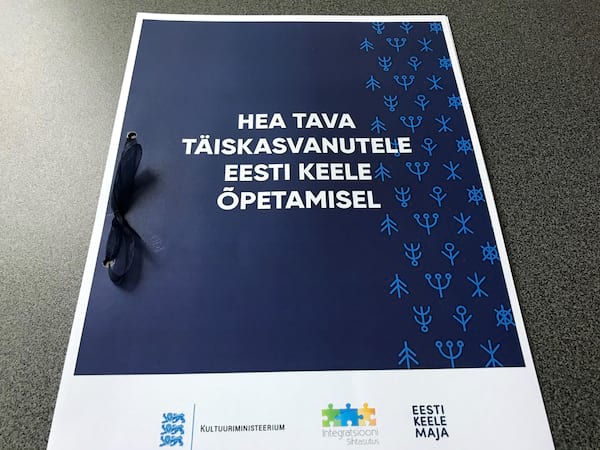 On the initiative of the Integration Foundation and in cooperation with the Ministry of Culture and the advisory committees of the Estonian Language Centres, best practice guidelines were drafted this September for the teaching of Estonian to adults. The guidelines are rooted in modern approaches to learning and in the best experiences of language-teaching.
On the initiative of the Integration Foundation and in cooperation with the Ministry of Culture and the advisory committees of the Estonian Language Centres, best practice guidelines were drafted this September for the teaching of Estonian to adults. The guidelines are rooted in modern approaches to learning and in the best experiences of language-teaching.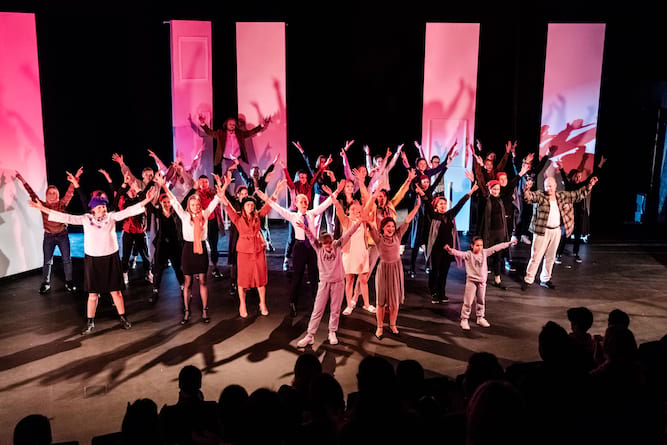
 Starting in late October, support meetings will resume for those returning to Estonia in order to help them adapt to life back in the country. Those attending the meetings will have the chance to share practical information and tell one another their stories.
Starting in late October, support meetings will resume for those returning to Estonia in order to help them adapt to life back in the country. Those attending the meetings will have the chance to share practical information and tell one another their stories.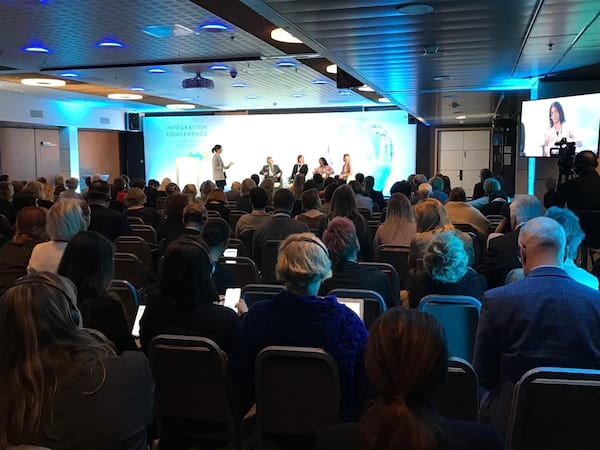 Registration is now open for the international conference on integration entitled ‘Communication in a Diverse Society: Listening to One Another Despite Our Differences’ that will be taking place in Tallinn on 12 & 13 November. It will bring together internationally recognised experts from Finland, Sweden, Denmark, the Czech Republic, Spain, the United Kingdom and of course Estonia. Should restrictions be in place at the time of the conference due to the health risks posed by coronavirus, the event will take place online.
Registration is now open for the international conference on integration entitled ‘Communication in a Diverse Society: Listening to One Another Despite Our Differences’ that will be taking place in Tallinn on 12 & 13 November. It will bring together internationally recognised experts from Finland, Sweden, Denmark, the Czech Republic, Spain, the United Kingdom and of course Estonia. Should restrictions be in place at the time of the conference due to the health risks posed by coronavirus, the event will take place online.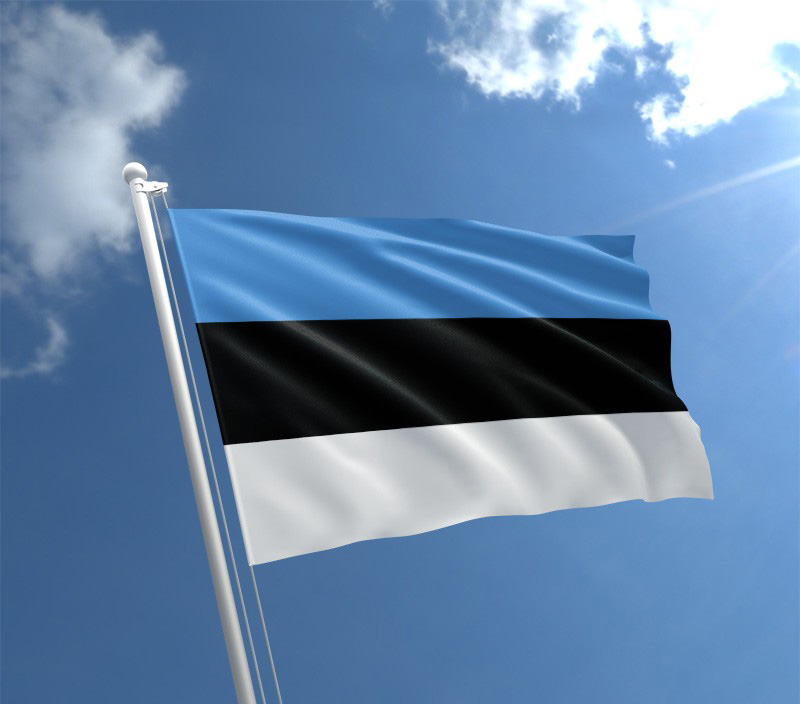 Citizens Day is marked on 26 November, and this year the Integration Foundation is once again organising an exciting online quiz about Estonia’s recent past in honour of the occasion. It will be taking place from 16-27 November, with a focus on interesting events and life in Estonia.
Citizens Day is marked on 26 November, and this year the Integration Foundation is once again organising an exciting online quiz about Estonia’s recent past in honour of the occasion. It will be taking place from 16-27 November, with a focus on interesting events and life in Estonia.
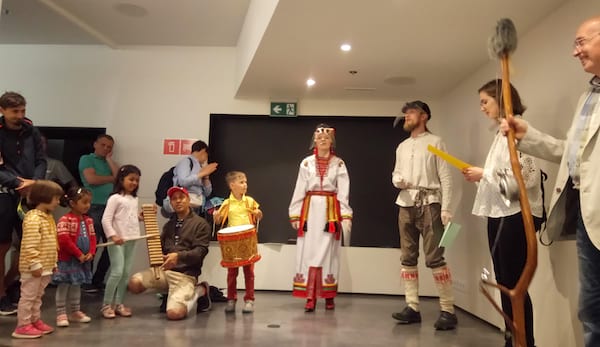 The Estonian language courses of the Estonian Language Houses of the Integration Foundation traditionally end with study visits. During these visits, language learners will gain new knowledge about Estonian culture, history, art, nature, etc. Study visits are part of the curriculum of language courses and offer the language learner an additional opportunity to practice Estonian in an exciting language environment.
The Estonian language courses of the Estonian Language Houses of the Integration Foundation traditionally end with study visits. During these visits, language learners will gain new knowledge about Estonian culture, history, art, nature, etc. Study visits are part of the curriculum of language courses and offer the language learner an additional opportunity to practice Estonian in an exciting language environment.